Are you sure you want to sign out?
Eligibility, application process, documents required.
- Frequently Asked Questions

Sources And References
Something went wrong. please try again later., you need to sign in before applying for schemes, it seems you have already initiated your application earlier. to know more please visit, check eligibility, promotion and development of tea tourism infrastructure in assam.
- The scheme will upgrade the existing tourist infrastructure of the Tea Garden.
- The scheme will encourage private tea companies to promote tea tourism in the State.
- The scheme will help to develop modern amenities to attract tourists from all over the world.
- The scheme will help to develop coordination amongst the tea stakeholders including state tourist operators for flourishing tea –tourism.
The scheme will promote tea tourism promotional activities such as plucking tealeaves, going on nature walks, trekking and rafting, and even play of golf, etc.
- Focusing cultural and socio-economic scenario of the Tea Tribes of Assam worldwide for tourist attraction.
- Local traditions like food, attire, and handicrafts will be promoted.
- Private Tea Garden companies’ Garden owners can apply.
- If the tea garden is on a lease, then, the leaseholder can also apply subject to the lease period in hand being a minimum of 15 years from the date of application.
- Tea Garden company/Garden owner/ lease holder must be willing to undertake a tea tourism scheme.
- Tea Gardens which are iconic/heritage will be preferred.
- The ideal size of the tea garden should be 50 hectares and above. In the case of the hill district, the ideal size may be reduced to 25 hectares.
- Tea Gardens must be free from all kinds of disputes, free from encroachment, and industrial pollution.
- Tea Gardens situated nearest to the reserved forest, wildlife sanctuaries, and National Parks as well as other existing major tourist destinations/circuits, will be preferred.
- Tea gardens which have many more existing tourist infrastructures, especially iconic bungalows, golf courts, etc. shall be preferred.
Assistance will be given only for the renovation of iconic bungalows and newly created tourism infrastructures.
- For employment purposes in tea tourism-related activities dependent on Tea Garden, workers will be given preference.
- Voter, PAN & Aadhar card: Identity documents of the applicant
- Roadmap: A sketch or snapshot of Google Maps, showing the way to the location from the nearest prominent place or from the main road.
- No objection certificate from circle officer/DC.
- Police Verification Report of the applicant.
- Tourist place photos: proximate tourist attractions/place of interest photographs
- Demand Draft of ₹ 5000/- (Non-Refundable) with the Form in favour of Managing Director, Assam Tourism Development Corporation Ltd., Guwahati.
- Proper Land documents of the tea garden. (certified copy of deed/land document (patta/namjari))
- Lease agreement in case of tea garden on lease.
- Copy the Site plan etc. of the tea garden.
- Site photographs: the desired location for photographs
- Passport Photos: 1 copy self-attached photograph stick on the form and two other photographs self-attached along with Form No. on the back side to be pinned with form.
- Photocopy of the form: need two sets of forms (1 set original + 1 set photocopy).
- Envelope: 1 no. self-addressed envelope.
- A self-contained proposal on Tea tourism clearly indicates the work to be done for making the tea garden a tea tourism spot so that all the recreational infrastructures are highlighted.
- Undertaking pertaining to compliance with all the norms and/or provisions of the implementing Guidelines.
- Balance sheets of the tea garden for the last five years to be duly certified by the CA.
- Financial soundness certificate.
What is the scope of this scheme?
The scheme aims to provide an overall experience for tourists in the midst of a tea garden or state, with an accommodation facility in an iconic bungalow with modern amenities. The scope of the scheme will include trekking in the natural beauty of a lush tea garden, undertaking a tea-testing session, visiting a modern tea factory and even trying one’s hand at plucking tea leaves, etc.
What kind of activities will be promoted under this scheme?
Does this scheme focus on the Tea tribes of Assam?
Yes, this scheme is focusing on the cultural and socio-economic scenario of the Tea Tribes of Assam worldwide for tourist attraction.
Does this scheme develop coordination amongst the tea stakeholders & state tourist operators?
Yes, the scheme will help to develop coordination amongst the tea stakeholders including state tourist operators for flourishing tea –tourism.
Who is eligible for the scheme?
A Private Tea Garden companies’ Garden owner can apply under this scheme.
Can a holder of tea garden on lease is eligible under this scheme?
Yes, if the tea garden is on a lease, then, the leaseholder can also apply subject to the lease period in hand being a minimum of 15 years from the date of application. Further, the Tea Garden company/Garden owner/ lease holder must be willing to undertake a tea tourism scheme.
Will any preference be given to the Tea Garden under the scheme?
Tea Gardens which are iconic/heritage, situated nearest to the reserved forest, wildlife sanctuaries, and National Parks as well as other existing major tourist destinations/circuits, will be preferred.
Would employment purpose-related activities in tea tourism be given preference under this scheme?
Yes, for employment purposes in tea tourism-related activities dependent on Tea Garden workers will be given preference.
What is the purpose of giving financial assistance under the scheme?
How can I know about the opening of the application form?
Assam Tourism Development Corporation Ltd. will give wide publicity through open advertisements in daily newspapers, electronic media, etc. as per the norms. The applicant must check on a regular basis these sources of information.
Who are the members of the State Level Committee (SLC) for selection of Tea Gardens?
The SLC shall be constituted with the following members: (a) Senior most Secretary, Chairman (b) Any Secretary of Tourism Department, Member (c) Secretary, Industries, Member (d) Director, Tourism, Member (e) Managing Director, ATDC, Guwahati, Member Secretary
Will any physical inspection be conducted before finalizing the name of a beneficiary?
A physical inspection of the shortlisted gardens to verify their feasibility will be conducted by Assam Tourism Development Corporation (ATDC) before final selection.
Who will approve the list of eligible tea gardens?
After scrutiny and physical inspection, the list of eligible tea gardens will be approved by the SLC for further implementation of the scheme.
Press Notice
Website Link
News and Updates
No new news and updates available
Quick Links
- Screen Reader
- Accessibility Statement
- Terms & Conditions
Useful Links

Get in touch
4th Floor, NeGD, Electronics Niketan, 6 CGO Complex, Lodhi Road, New Delhi - 110003, India
support-myscheme[at]digitalindia[dot]gov[dot]in
(011) 24303714
You will be redirected to your dashboard shortly. We will also call you back in 24 hrs .
- 15 Best Tea Estates In Assam That Are A Must-Visit For All The Chai Lovers
Imagine yourself waking up to the views of widely spread tea gardens and where the tea leaves are being plucked for your morning tea. Dreamy isn’t it? Turn this dream of yours into a reality while you’re in Assam, a paradise which is filled with lush and refreshing tea gardens. Cultivating tea for ages now, these tea estates in Assam have been bringing happiness to every household and here’s a list of famous tea estates that you must explore on your next trip to Assam.
15 Best Tea Estates In Assam That Are A Must Visit
Located in the eastern Himalayas along the Bramhaputra River, Assam is known for its wildlife, archaeological sites and tea plantations. Here, we have curated a list of the best tea estates in Assam , for you to visit on your next trip to this beautiful state.
1. Manohari Tea Estate
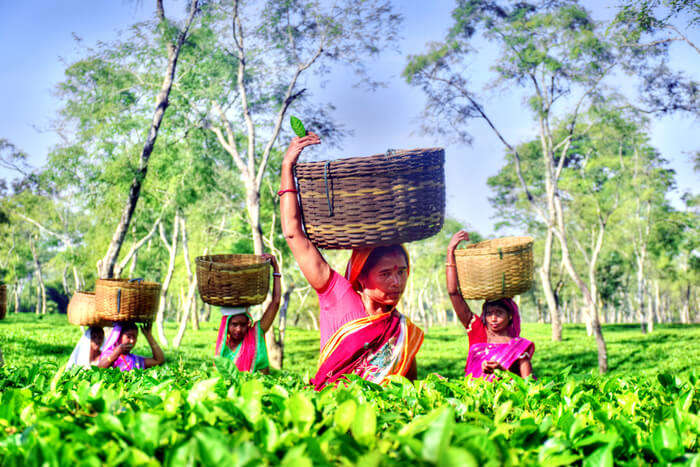
Image Source
The first one to make to our list of best tea gardens in Assam is Manohari Tea Estate. Bringing your fresh cup of morning tea since the British era, this renowned tea estate is settled in the upper region of Assam at an elevation of 390 ft above sea level along the Indian-Burmese border. The estate is spread across an area of 1800 acres and 1000 acres is covered with tea bushes. Throughout all these decades, the quality and the rich aroma of the tea leaves harvested by Manohari Tea Estate is unmatched.
Rating: 5/5 Location: Manohari, Assam Website
Must Read: 18 Top Things To Do In Assam That Guarantee The Best Northeastern Holiday
2. Assamica Agro Organic Farm
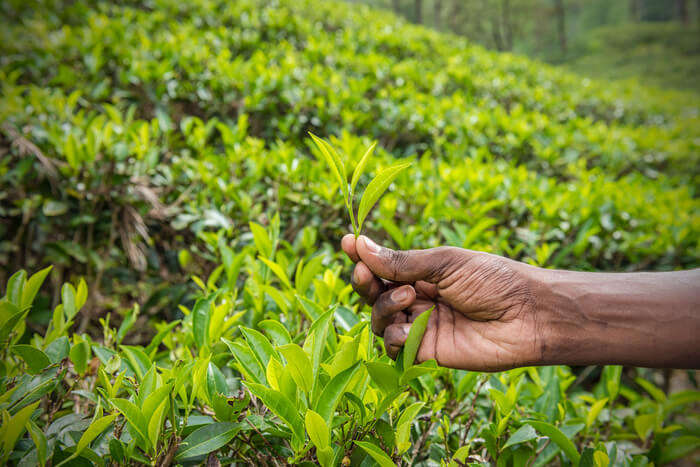
The Assamica Agro Organic farm has redefined the tea experience with their ethical and natural tea leaves produced by the organic tea farmers in Assam. The tea cultivated by the farm makes a healthy cup of tea, as they are free from pesticides and other chemicals. Among all the tea estates in Assam , this organic farm produces chemical-free aromatic brewed tea leaves and also focuses on enhancing the livelihood of the farmers.
Rating: 5/5 Location: Assamica Agro, C/O-Kanoka Tea Estate Panchnoi, P.O. Hugrajuli, Sonitpur District Assam Website
Suggested Read: Shopping In Guwahati: 10 Places To Buy All Assamese Delights From Tea & Silk Sarees
3. Sonapur Tea Estate
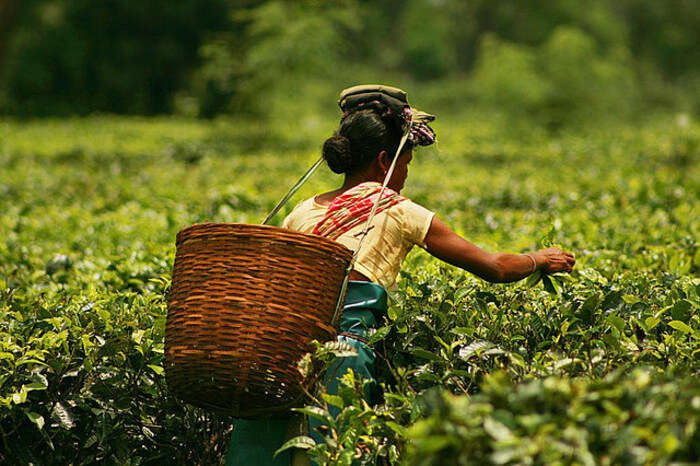
Going beyond the surreal beauty of tea estates in Assam , the Sonapur tea estate will take you to Guwahati which is known as the heart of the North-East. Established by the Britishers in early 1924, this tea estate has been taken over by the three generations of the Bhaduri Family. Spreading the strong brew of their high-quality CTC tea, this estate started its journey by producing Orthodox tea in the initial years. Throughout these years, this tea estate in Assam has established a name among the major companies like Tata tea and Levers.
Rating: 5/5 Location: Sonapur – Rewa Rd, Gumoria Pathar, Assam Website
Suggested Read: 5 Best National Parks In Assam: Why It’s The Favourite Of All Wildlife Enthusiasts
4. Ghograjan Tea Estate
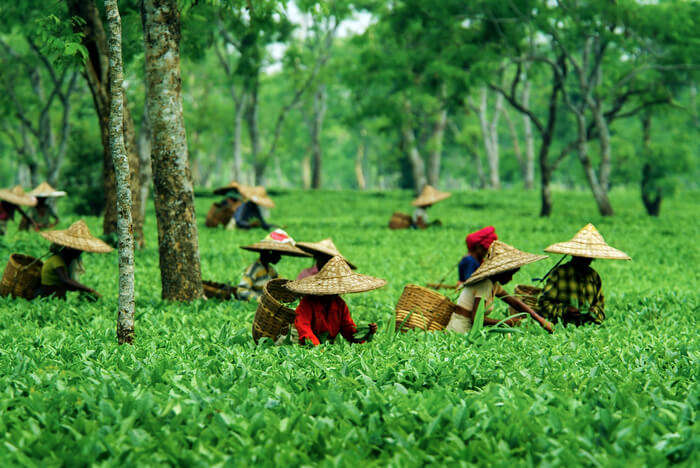
Taking along the legacy for the 5th generation, this tea estate was started in the early 1930s when the first seeds were sown alongside the Ghagra River. The name “Ghograjan” is derived from this river as locally it means “small river”. Spread across an area of 350 acres, this tea estate has gained trust with its quality in producing CTC and the finest Orthodox tea in the region.
Rating: 5/5 Location: Ghograjan Tea Estate, P.O. Lahoal, Dibrugarh, Assam Website
Suggested Read: Cycle Safari In Manas National Park: Assam Launches An Adventurous Way To Get Closer To Nature
5. Joonktollee Tea Estate
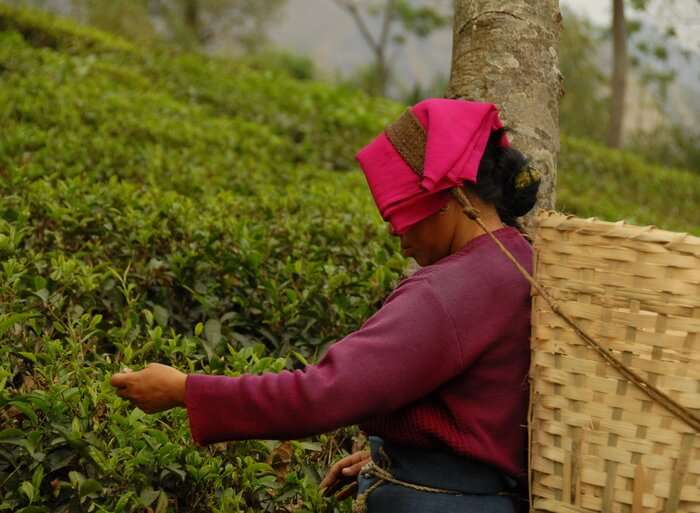
Holding a single largest tea factory in the North East, the Joonktollee tea estate is spread across an area of 1867.98 acres among which 1202.82 acres is used for plantation. Situated at the Barbam district of Assam, this tea estate has been SGS, UK for production and manufacture of CTC, Orthodox and Green Tea. It is amongst the best tea gardens in Assam .
Rating: 5/5 Location: Barbam, Dibrugarh Dist. Assam Website
Suggested Read: 7 Temples In Assam For A Spiritual Awakening In The Northeast
6. Mangalam Tea Estate
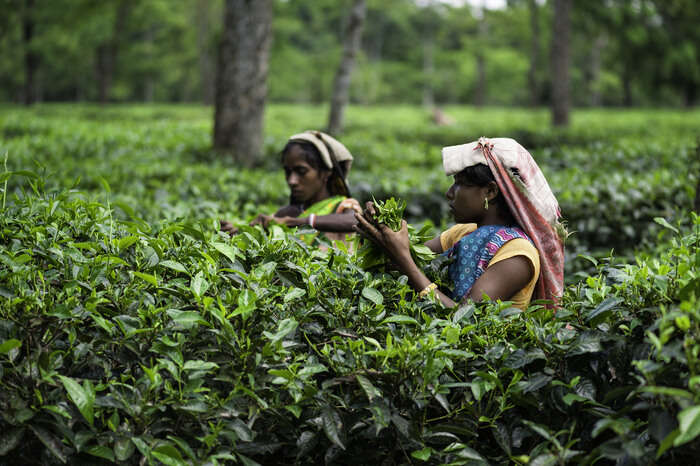
The tea estate has acquired the region just beside a government reserve forest that shelters varied wildlife. Situated across the Towkok river, the tea estate is spread across an area of 117.99 hectares. The tea estate is a part of the Towkok tea garden which was taken over by the Jayshree Tea industries in 1955. The tea estate has maintained a good quality throughout this year and now they have entered into the production of CTC and Orthodox tea.
Rating: 5/5 Location: Towkok Grant No.2, Assam Website
Suggested Read: 5 Exciting Things To Do In Jorhat That Makes This Place A Must-Visit In Assam
7. Khongea Tea Estate
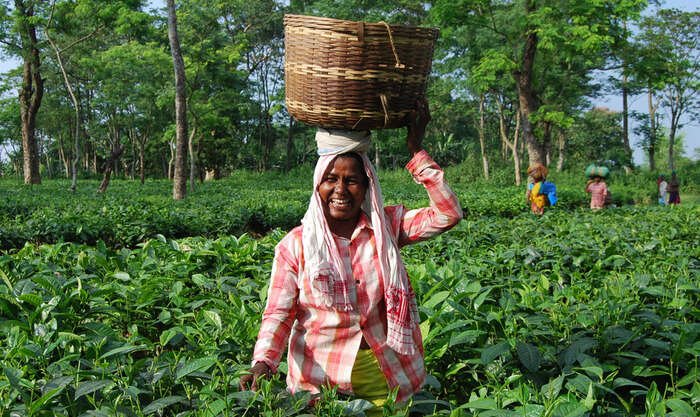
Captured the highest rank in the tea industry, the Khongea tea estate came into existence around 1949. This tea estate is located in the upper region of Assam, resting alongside the banks of the Brahmaputra river. Enjoy the view of the golden tipped tea leaves while taking a sip of your special strong Assam tea in Khongea Tea Estate.
Rating: 5/5 Location: Hiloidari, Assam Website
Suggested Read: Kaziranga National Park, Assam – Off To The World’s Largest Home Of Rhinos
8. Harmutty Tea Estate
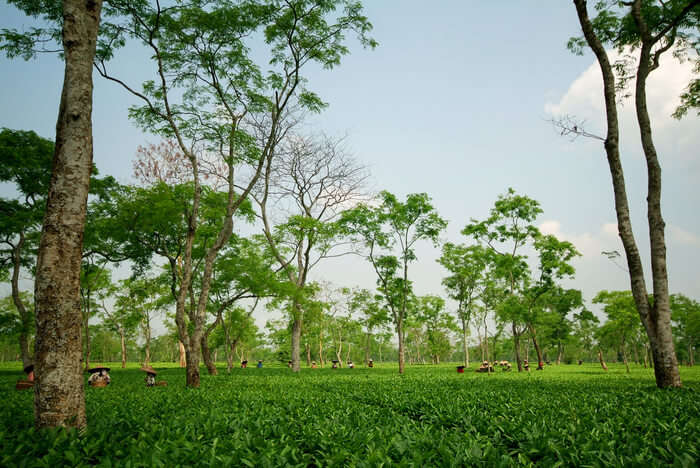
Derived from the name of queen Hiramati, this is one of the oldest tea estates in Assam planted in 1870. The tea estate is settled at a picturesque location in Assam with the Dikrong river flowing along with the garden with the backdrop of the hills of Arunachal Pradesh. Along these years the Harmutty tea estate has been producing strongly brewed high-quality tea leaves for a relaxing tea break. It is one of the best Assam tea garden.
Rating: 4.8/5 Location: Lakhimpur, Assam Website
Suggested Read: 4 Resorts Near Guwahati: Dwellings That Capture The Alluring Essence Of Assam
9. Wild Mahseer
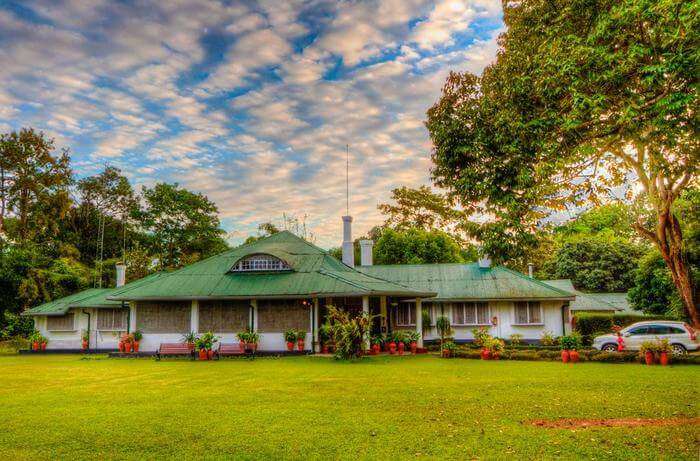
Get that royal feeling while staying in this heritage tea estate resort in Assam. Covering an area of 22 acres, this tea estate resort will give you a glimpse of the lifestyle of the Raj-era tea planters. Located at the outskirts region of Tezpur, this tea estate is situated at a distance of 40 minutes from the Jia Bhoroli River. Built in 1864 by the British Assam Tea Company, this resort showcases a beautiful blend in architecture that has a colonial and Assamese touch.
Rating: 4.7/5 Location: Balipara Division Addabarie Tea Estate, Sonitpur Dist, Off National Highway 52, Balipara, Assam Website
Suggested Read: 5 Popular Waterfalls In Assam That Glorify The Beauty Of The State
10. Beesakopie Tea Estate
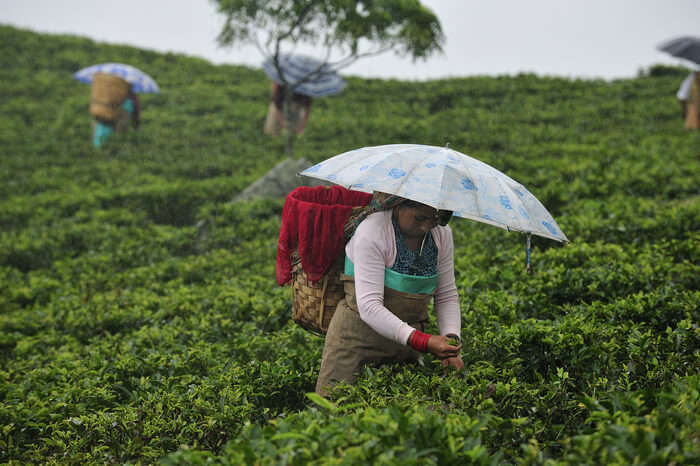
Settled close to the Burmese border in the Tinsukia district, the Beesakopie tea estate is the 3rd largest tea estate in the country. The malty Assam tea manufactured in this tea estate will give you a memorable tea experience. Locally, this tea estate owns one of the largest tea factories in Assam.
Rating: 4.7/5 Location: Tinsukia District, Assam Website
Suggested Read: 33 Tourist Places In Assam: Unveiling The Hidden Charm Of The North-East!
11. Teloijan Tea Estate
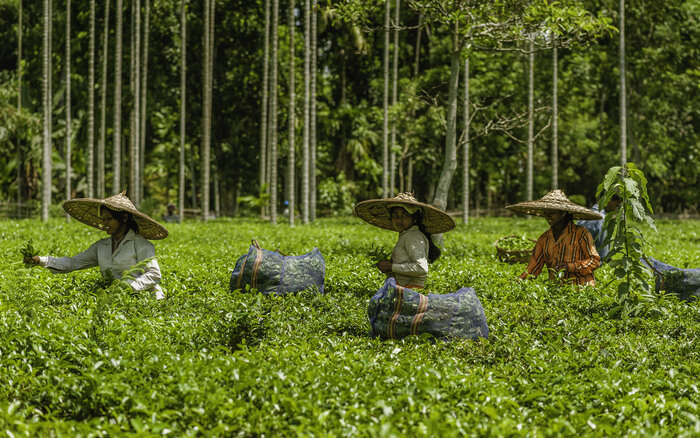
Started with the vision to give the people a healthy and high-quality tea experience, the Teloijan came into existence in the year 1922. Carried along by generations of family, throughout these years there is a constant blending and tea tasting to come up with the best-brewed tea leaves.
Rating: 4.7/5 Location: Moranhat, Dibrugarh-Assam Website
Suggested Read: 6 Places To Visit In Assam In May To Keep Your Senses Captivated
12. Corramore Tea Estate
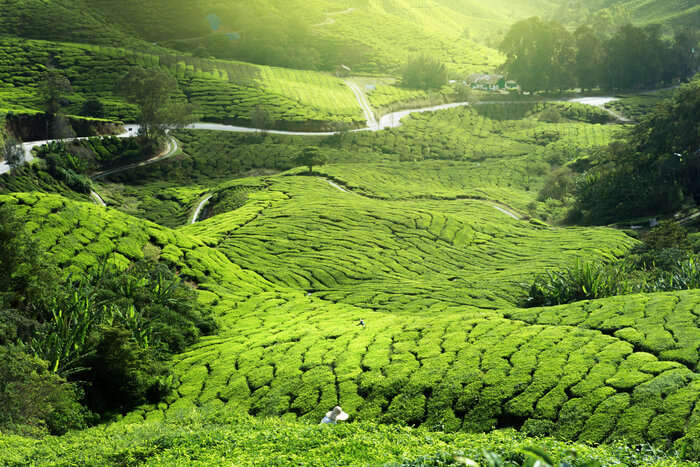
Holding a family heritage of over 100 years, the Corramore tea estate was founded by Robert Logan from Scotland in the year 1860s. Settled in Hatigarh of Darrang district of Assam, this heritage tea estate is now owned by the Williamson Tea. Spread across an area of 480 hectares of land, the tea estate focuses on the harvesting of Camellia assamica species.
Rating: 4.5/5 Location: Hatigarh, Darrang district-Assam Website
Suggested Read: 8 Godly Places To Visit In Guwahati In May On Your Assam Trip
13. Halmari Tea Estate
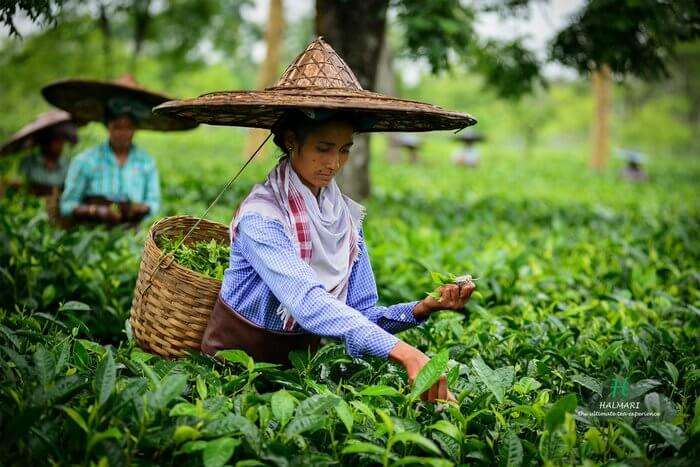
The Halmari Tea Estate is carrying along with the legacy of the finest quality of tea for the past 100 years. Spread across an area of 374 hectares, this tea estate is located in the Moran district of Assam. With the persistent efforts and managing the same quality of their tea over these years, the Halmari Tea Estate has managed to win the highest price of a tea estate in Assam . Their CTC and Orthodox teas will give you the chance to get a taste of Halmari tea anywhere in the world.
Rating: 4.5/5 Location: Moran district, Dibrugarh-Assam Website
Suggested Read: 10 Beautiful Hill Stations In Assam One Must Visit To Rejuvenate The Senses
14. Monabarie Tea Estate
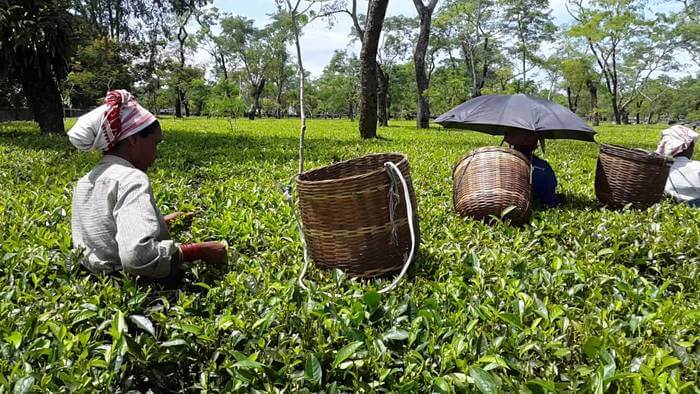
Take in the heavenly aroma of the Assam tea as you step down at Monabarie Tea Estate. Located at the Biswanath Chariali district of Assam, this is the largest tea estate in Assam and all over Asia. This tea estate is also ranked as the world’s largest tea garden. The tea estate is owned by McLeod Russel India Limited which is a part of the Williamson Magor Group. Spread across an area of 1158 hectares, these red coloured leaves tea will definitely give your morning a rejuvenating start.
Rating: 4.3/5 Location: Near Biswanath Chariali, Sonitpur District-Assam Website
15. Nonoi Tea Estate
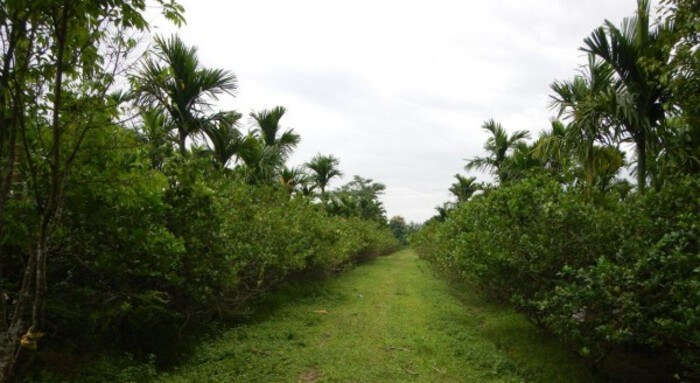
Locally known as the Rangamati, the name of this estate emerged from the waterfalls which were called noi-noi in the colloquial British language, hence the name “Nonoi”. Resting at the peak of the Karbi range in Nangao district of Assam. Spread across an area of 959.17 hectares, this tea estate is situated at an altitude of 225 metres above sea level where the tea plantations are harvested.
Rating: 4.0/5 Location: Nagaon, Assam Website
Further Read: 15 Best Assam Food Options For The Foodies Traveling To North East
Now, if you want to enjoy your strong brewed cup of tea while admiring the tea gardens, then book your Assam tour package with TravelTriangle and experience a relaxing vacation amidst the tea estates in Assam.
For our editorial codes of conduct and copyright disclaimer, please click here
Frequently Asked Questions About Tea Estates In Assam
Which is the first tea garden in Assam?
The first tea garden was established in 1837 at Chabua in Upper Assam. Close to 1840, the Assam tea company started a commercial of tea in the region.
Why tea is grown in Assam?
Assam is a state which is prone to heavy rainfalls which is the reason why there is a rise of many rivers, mainly the Brahmaputra. The water overflows to the banks creating a fertile coat of topsoil every year and boosts the growth of tea crops.
How many tea gardens are there in Assam?
There are around 100 tea estates in Assam which are dedicated to the agriculture of tea. The tea estates are spread across an area of 2,16,2000 hectares.
Which is the largest tea garden in Assam?
Monabarie Tea Estate is the largest tea garden in Assam which is located at the Biswanath Chariali district of Assam.
What kind of tea is available in Assam?
Assam is famous for producing the black tea which is made from the leaves of the Camellia sinensis plant. The black teas are oxidized than other teas like green tea or white tea.
Which is the best Assam tea?
Gingia premium, Vahdam Indian teas is the best Assam tea which has a perfect balance and has a mild taste which is full of malty goodness.
How much tea does Assam produce?
The total production of tea in Assam is around 652.95 million kilograms in the year 2015-16.
People Also Read:
Meghalaya In May Tea Plantations In Malaysia Tea Plantations On A Memorable Family Trip To Kerala
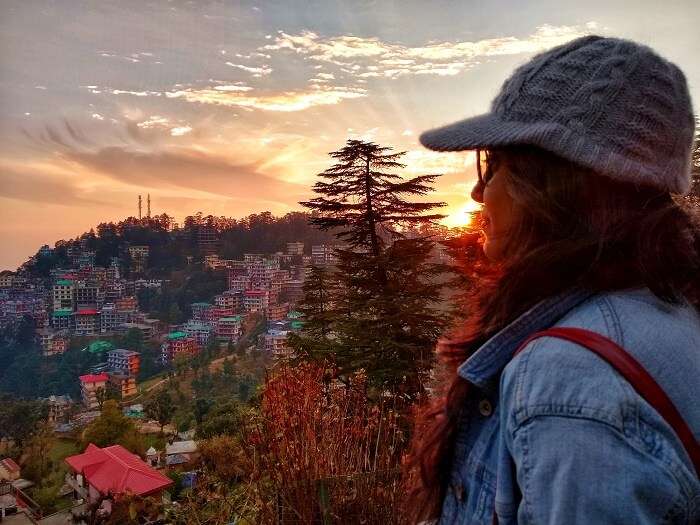
Priyanka Banerjee
A mass-media graduate, Priyanka is a passionate writer and an avid traveler. Whether it’s about capturing the sunsets or hogging up some delicious food from different places, she never leaves a second to decide. Her mantra of keep going is “work, save, travel, repeat” which she lives by heart.
Places to visit in India
- 30 Best Places To Visit In Bangalore In...
- 64 Best Places To Visit In Kerala For...
- 39 Best Places To Visit In October In...
- 101 Places To Visit In India Before You...
- 20 Places To Visit In Sakleshpur In 2024...
- 35 Exotic Places To Visit In December In...
- 32 Best Places To Visit In January In...
- 20 Best Places To Visit In Meghalaya For...
- 12 Places To Visit In Punjab To Witness...
- Unravel Places To Visit In Uttarakhand For A...
- 26 Best Places To Visit In Jammu For...
- 29 Places To Visit In Monsoon In India...
- Best Places To Visit In August In India...
- 36 Beautiful Places To Visit In Kashmir One...
- 55 Fascinating Places To Visit In Hyderabad In...
- 35 Ultimate Places To Visit In July In...
- 72 Places To Visit In Rajasthan In 2024
- 42 Best Places To Visit In Pondicherry In...
- 33 Spectacular Places To Visit In Mumbai On...
- 43 Places To Visit In West Bengal In...
- 41 Best Places To Visit In June In...
- 35 Best Places To Visit In Mysore In...
- 35 Places To Visit In Coorg For A...
- 54 Best Places To Visit In India In...
- 8 Places To Visit In Jibhi For A...
- 64 Best Tourist Places To Visit In Goa...
- 25 Best Places To Visit In Visakhapatnam In...
- 16 Places To Visit In Lucknow That Showcase...
- 60 Best Places To Visit In Kolkata That...
International Places To Visit
- 35 Best Places To Visit In Japan That...
- 40 Best Places To Visit In Canada In...
- 28 Places To Visit In October In World...
- 28 Stunning Places To Visit In South Korea...
- 25 Places To Visit In Manila In 2024...
- 19 Best Places To Visit In Morocco In...
- 34 Best Places To Visit In Austria In...
- 82 Best Places To Visit In Turkey That...
- 10 Breathtaking Places To Visit In The World...
- 22 Best Places To Visit In Netherlands: The...
- 24 Fabulous Places To Visit In Ireland: The...
- 19 Best Places To Visit In London In...
- Discover 24 Places To Visit In Switzerland In...
- 17 Mystical Places To Visit In Egypt In...
- 15 Places To Visit In United Kingdom That’ll...
- 33 Best Places To Visit In Amsterdam On...
- 19 Best Places To Visit In Kuala Lumpur...
- 42 Best Places To Visit In Bangkok In...
- 11 Popular Places To Visit In Doha For...
- 26 Places To Visit In Germany In 2024...
- 32 Places To Visit In Belgium That Make...
- 15 Places To Visit In USA That Reflect...
- 37 Best Places To Visit In Dubai At...
- 15 Top Places To Visit In Asia To...
- 20 Must-See Places To Visit In Milan In...
- Top 27 Places To Visit In Greece In...
- 31 Places To Visit In Abu Dhabi In...
- 25 Places To Visit In August In The...
- 15 Best Places To Visit In Chicago That...
- 14 Places To Visit In Berlin You Must...
Things To Do
- 40 Things To Do In Pondicherry In 2024...
- 12 Best Things To Do In Matheran In...
- 23 Intoxicating Things To Do In Turkey In...
- Top 14 Interesting Things To Do In Kanyakumari...
- 38 Things To Do In Gokarna To Escape...
- 12 Best Things To Do In Varanasi For...
- 21 Remarkable Things To Do In Krabi In...
- 16 Things To Do On Honeymoon In 2024
- 23 Things To Do In Chennai To Explore...
- 20 Things To Do In Ahmedabad For An...
- 30 Best Things To Do In Wayanad For...
- 37 Amazing Things To Do In Kerala For...
- Top 39 Things To Do In Jaipur
- 19 Things To Do In Mussoorie For A...
- 33 Best Things To Do In Kolkata In...
- Top 25 Things To Do In Kodaikanal For...
- 32 Things To Do In Ooty That Will...
- 15 Things To Do In Srinagar That Will...
- 20 Things To Do In Darjeeling
- 27 Kickass Things To Do In Malaysia
- 25 Best Things To Do In Phuket That...
- 18 Awesome Things To Do In Kasol On...
- 27 Exciting Things To Do In Chikmagalur
- 9 Things To Do In Mathura For An...
- 23 Things To Do In Lonavala For A...
- 10 Best Things To Do In Lakshadweep For...
- 30 Joyful Things To Do In Bhutan
- 38 Exhilarating Things To Do In Udaipur In...
- 18 Best Things To Do In Chandigarh
- 29 Amazing Things To Do In Shimla
- 30 Things To Do In Dehradun In 2024
- 7 Incredible Things To Do In Vrindavan For...
Recent Posts

Plan A Road Trip From Manali To Kaza With This Best Guide In 2024

Explore The Beautiful Netravati Waterfall On Your Next Goa Trip In 2024

Plan A Magical Road Trip From Bhubaneswar To Chilika Lake In 2024
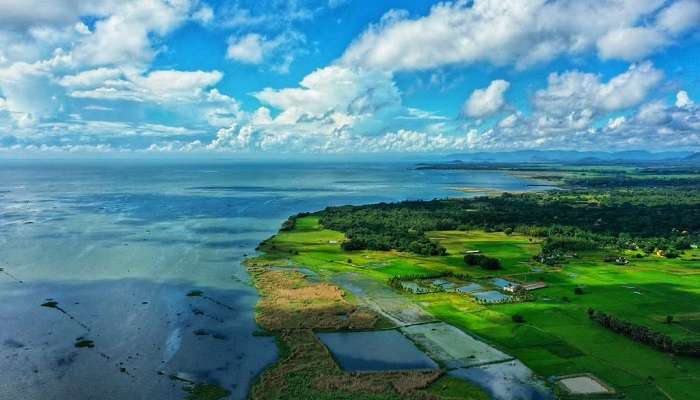
Embark On An Adventurous Road Trip From Puri To Chilika Lake In 2024
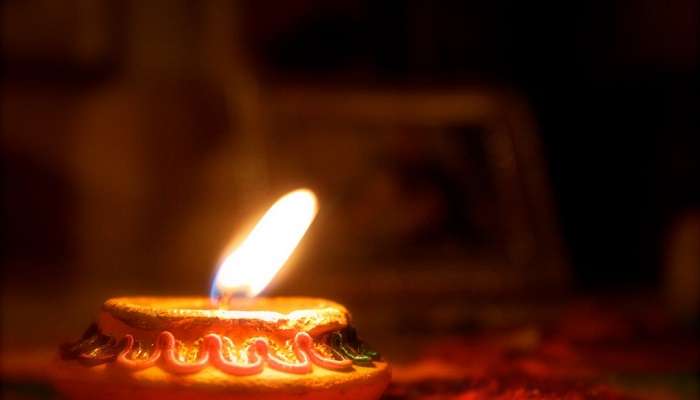
Seek Blessings From Sant Shiromani Guru Ravidas Mandir In Varanasi In 2024
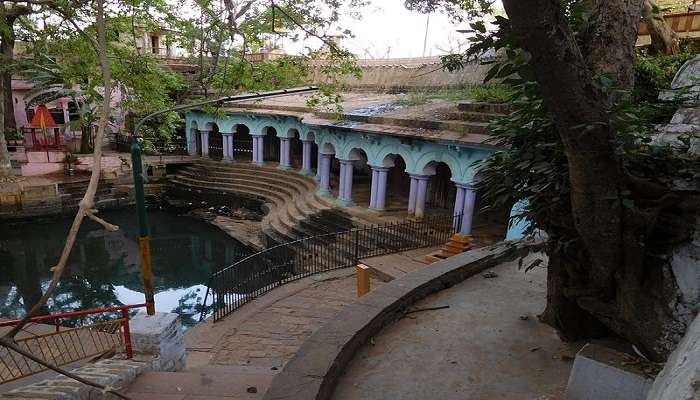
Bhadaiya Kund Is A Natural Mineral Spring You Can Explore In 2024
Trending Blogs
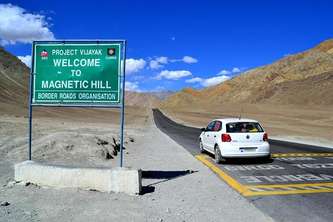
20 Mysterious Places In India To Visit In 2024 More Bizarre Than The Bermuda Triangle

10 Scariest Roads In India That Are A Driver’s Nightmare
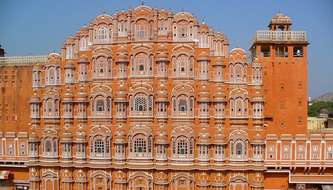
101 Places To Visit In India Before You Turn 30 in 2024

35 Exotic Places To Visit In December In India 2024 To Enjoy A Surreal Vacation
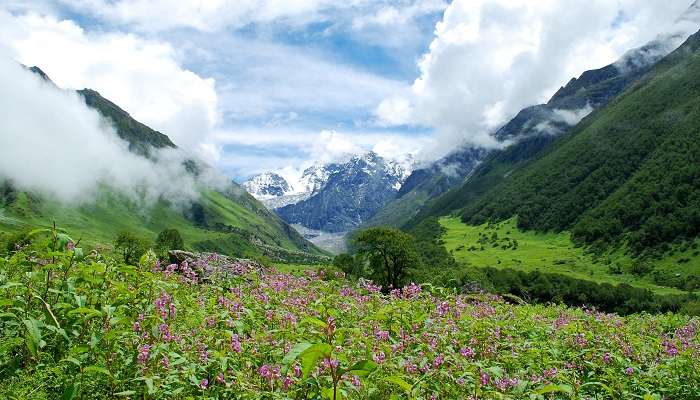
64 Top Honeymoon Destinations In India In 2024

95 Best Honeymoon Destinations In The World In 2023 For A Romantic Escape!
Best Places To Visit In India By Month
Best places to visit outside india by month.
- TravelTriangle
- North East » Assam »
- Tour Packages
- Honeymoon Packages
- Family Packages
- Budget Tour Packages
- Luxury Tour Packages
- Adventure Tour Packages
- Group Tour Packages
- Kerala Tour Packages
- Goa Tour Packages
- Andaman Tour Packages
- Sikkim Tour Packages
- Himachal Tour Packages
- Uttarakhand Tour Packages
- Rajasthan Tour Packages
- Tour Packages From Delhi
- Tour Packages From Mumbai
- Tour Packages From Bangalore
- Tour Packages From Chennai
- Tour Packages From Kolkata
- Tour Packages From Hyderabad
- Tour Packages From Ahmedabad
- Kerala Tourism
- Goa Tourism
- Sikkim Tourism
- Andaman Tourism
- Himachal Tourism
- Uttarakhand Tourism
- Rajasthan Tourism
- Hotels in Kerala
- Hotels in Goa
- Hotels in Sikkim
- Hotels in Andaman
- Hotels in Himachal
- Hotels in Uttarakhand
- Hotels in Rajasthan

Exploring the Essence of Assam: A Journey through Tea Tourism
Assam’s sprawling tea Assam’s gardens are all about enjoying the great outdoors in the lap of nature. So, next time you’re in Assam, do raise a cup to Tea Tourism.

Nestled in the North eastern corner of India, the state of Assam is renowned for its lush green landscapes, rich cultural heritage, and, of course, its world-famous tea. Assam has been a vital player in the global tea industry for over a century, and its tea estates offer a unique and immersive experience for tourists. Tea tourism in Assam is a growing trend that not only allows visitors to savour some of the finest teas in the world but also to get a glimpse into the fascinating world of tea production.
Considering the enormous potential of tea tourism in Assam, the Department of Tourism plans to develop 50 select tea gardens having iconic tea bungalows that are at least 50 years old and which are close to existing tourism circuits as tourism destinations on PPP mode. The development of tea tourism in Assam, besides sustaining the environment and preserving heritage and culture, will benefit the state by creating employment opportunities and boosting the rural economy.
Tea has been an integral part of Assam’s history, culture, and economy since the early 19th century. The British East India Company is credited with introducing commercial tea cultivation in Assam. Robert Bruce, a Scottish explorer, is believed to have discovered wild tea plants in Assam in the 1820s, although it is also believed that the local Singpho tribals had been cultivating and drinking tea for a long time as an herbal drink. Bruce’s plants were eventually used to establish the first tea gardens in the region. Assam’s unique climate and geography make it the ideal location for growing the Camellia sinensis var. assamica tea plant, which produces the bold, brisk and malty flavour for which Assam teas are famous.
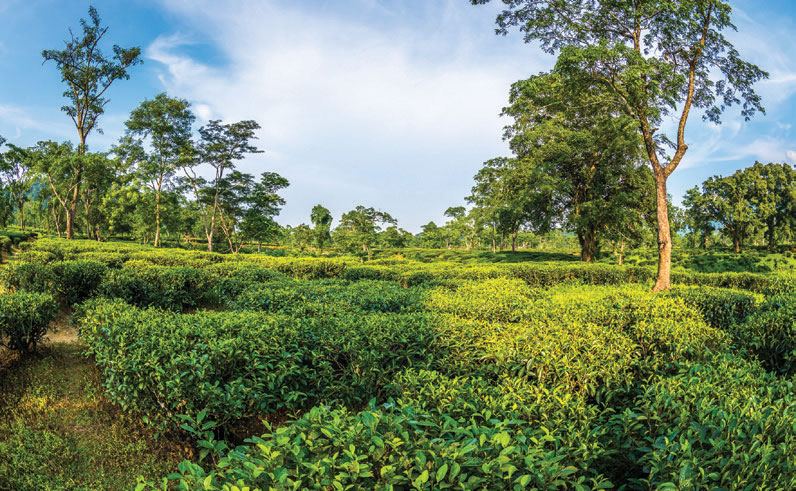
Assam boasts more than 800 tea estates spread across the Brahmaputra Valley. These estates are not only places of tea production but also picturesque destinations for tourists. Each estate has its charm and distinct character, from the serene landscapes to the historic bungalows that once housed British tea planters.
A few of the must-visit tea estates in Assam include Monabarie Tea Estate which is said to be Asia’s largest tea estate, the Mancotta Tea Estate which is redolent with heritage, and the eco-conscious Wild Mahseer Lodge which is nestled within the Addabarie Tea Estate.
TEA TOURISM DESTINATIONS
With more than 800 major and 60,000 small estates spread across 300,000 hectares, Assam has the world’s largest concentration of tea plantations and employs 17% of the state’s workforce. Assam tea accounts for 55% of India’s total tea production and 80% of the country’s export. Therefore, it should come as no surprise that Assam is a treasure trove of tea tourism destinations, most of which are in Upper Assam, with numerous tea estates and gardens scattered across its lush landscapes. Each destination offers a unique experience, from guided tours of tea production to opportunities for cultural immersion and wildlife exploration. Dibrugarh and Jorhat are two major tea tourism destinations.
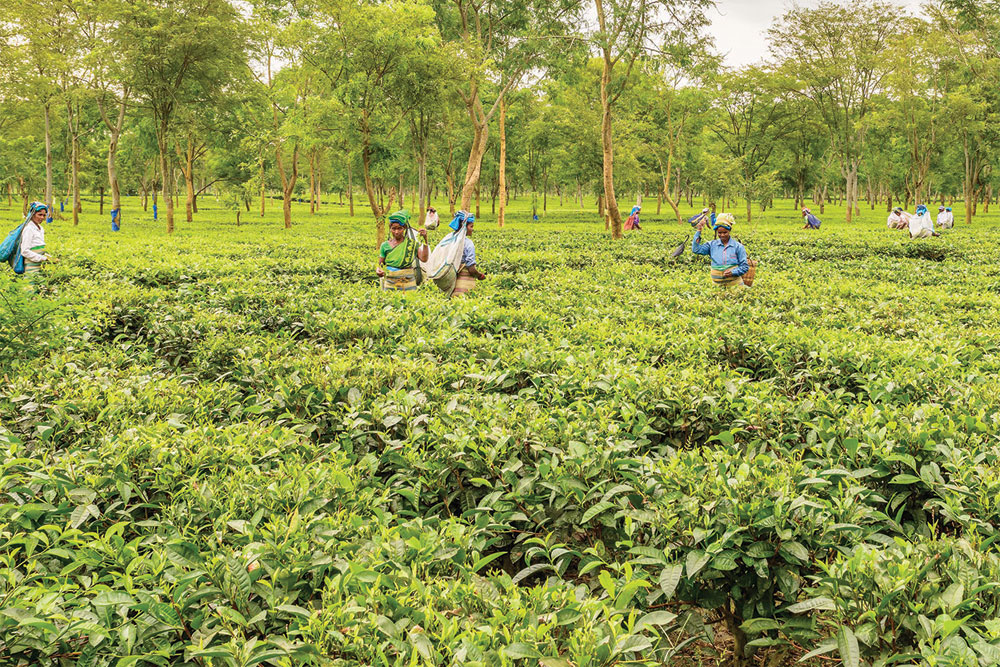
Established in 1970, the Guwahati Tea Auction Centre (GTAC) is one of the busiest tea trading facilities in the world and a must visit. The Tocklai Experimental Station in Jorhat district is the world’s oldest and largest research station of its kind, carries out clonal propagation and constant research so that the strength of the full-bodied liquor is retained and the tea bushes yield high-quality tea.
Many of the heritage residential bungalows of the tea estates have been developed as tea garden resorts to attract tourists. These include Mancotta Chang Bungalow and Chowkidinghee Heritage Chang Bungalow in Dibrugarh, Wathai Heritage Bungalow in Tinsukia, and many more.
MUST-VISIT TEA ESTATES
MANCOTTA TEA ESTATE, DIBRUGARH: Nestled in the picturesque town of Dibrugarh, this tea estate boasts a charming heritage bungalow that serves as a homestay for tourists. Guests can engage in tea plucking, explore the estate’s gardens, and learn about the tea-making process. The sprawling tea gardens, colonial-era bungalow, and tranquil surroundings provide visitors with a glimpse into the rich history and tradition of Assam’s tea industry. Tourists can embark on guided tours that take them through the tea cultivation and processing methods, providing a fascinating insight into the making of Assam tea. For those simply seeking a serene escape, the estate’s charming bungalow, which once served as the home of British planters, offers a comfortable stay where travellers can relax and enjoy the serene ambience.
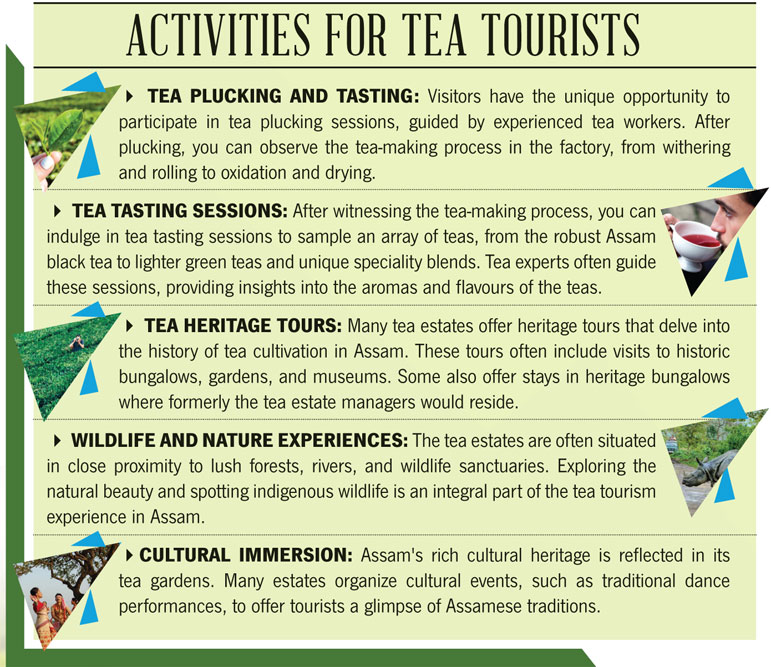
WILD MAHSEER, BALIPARA: Set in the middle of the Addabarie Tea Estate, this luxury lodge combines tea tourism with a focus on wildlife conservation. Visitors can enjoy nature walks, bird watching, and even go on a safari to explore the nearby Nameri National Park. The Lodge is a beautifully restored heritage bungalow, and serves as the perfect base for travellers to explore the estate and its surroundings. It also a tranquil and authentic atmosphere, allowing guests to relax and unwind in the midst of nature.
MARGHERITA TEA ESTATE, MARGHERITA: Nestled in the serene landscape of Margherita in the upper Assam region, this tea estate welcomes visitors with open arms. It is famous for its historic heritage bungalows and golf course. Tourists can learn about the tea manufacturing process, relax in the colonial-style surroundings, and explore the nearby Singpho village to learn about the local culture. Tourists have the opportunity to explore the sprawling tea gardens, where they can witness the meticulous process of tea cultivation and plucking.
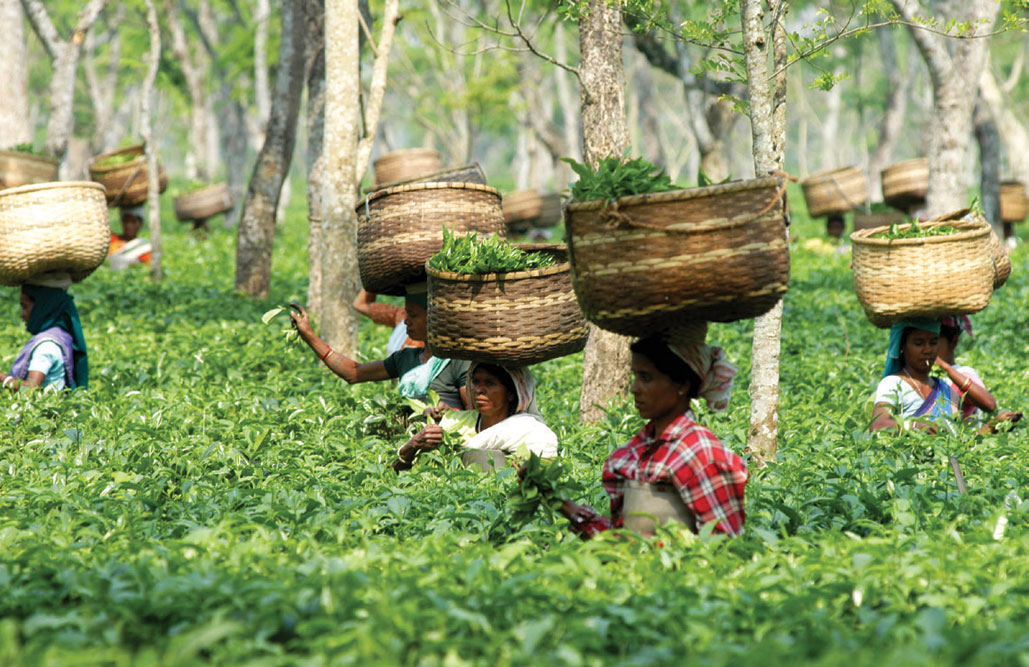
MONABARIE TEA ESTATE, MONABARIE: Set in Assam’s Biswanath District, this is Asia’s Largest Tea Estate. The sprawling gardens consist of 1158 hectares of tea plantations and are owned by the McLeod Russel India Limited, a part of the Williamson Magor Group. Tourism at Monabarie Tea Estate is a serene and immersive experience that beckons travellers to the heart of Assam’s tea country.
HATHIKULI TEA ESTATE, GOLAGHAT: This estate is unique for its location near the Kaziranga National Park, a UNESCO World Heritage Site known for its population of one-horned rhinoceros. Tourists can enjoy a blend of tea experiences and wildlife safaris.
NONAIPARA TEA ESTATE, DIBRUGARH: Nonaipara Tea Estate offers a serene and picturesque atmosphere. Visitors can participate in tea plucking and processing, explore the well-maintained gardens, and enjoy leisurely strolls in the estate.
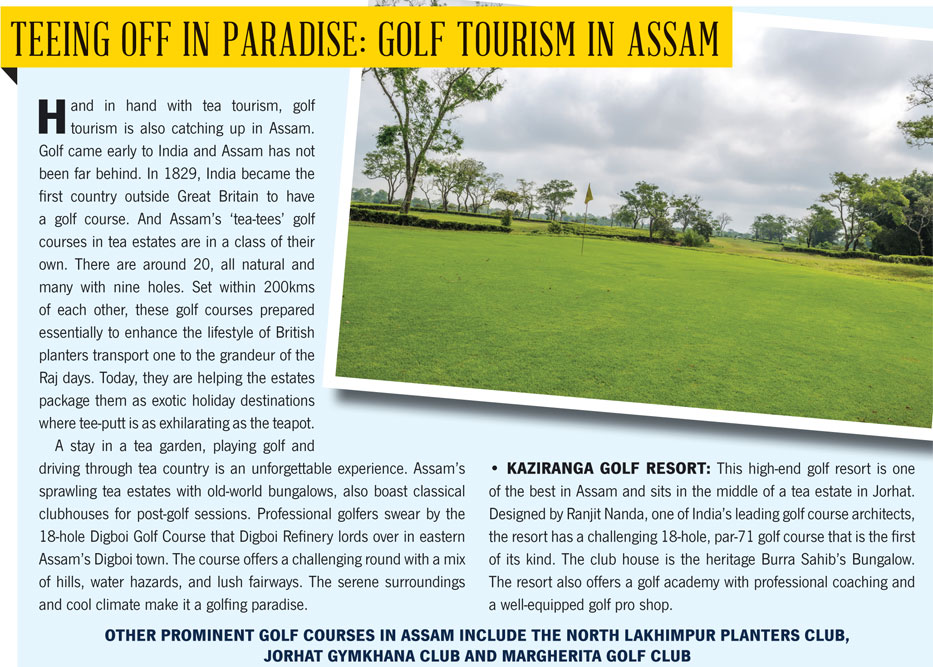
GATOONGA TEA ESTATE, DIBRUGARH: Gatoonga Tea Estate is known for its lush gardens and stunning scenery. It provides guided tours of the tea factory, cultural performances, and opportunities to interact with the estate workers.
BOGAPANI TEA ESTATE, DIBRUGARH: This estate is situated amidst picturesque surroundings. Visitors can take guided tours of the tea factory, learn about the tea-making process, and engage in tea-tasting sessions.
MANJUSHREE TEA ESTATE, TINSUKIA: Manjushree Tea Estate offers guided tours of the tea manufacturing process, tea plucking experiences, and the chance to stay in cosy bungalows surrounded by tea gardens.
MANOHARI TEA RETREAT, DIBRUGARH: This charming resort sits amidst the lush greenery of an 1,800-acre tea estate, with over 1,000 acres planted with tea bushes, and evokes the old-fashioned elegance of the colonial era. The rooms and cottages are reminiscent of a British tea planter’s mansion.
DURRUNG TEA ESTATE, DEKA CHUBURI: Situated on the north bank of the mighty Brahmaputra in Sonitpur District, this tea plantation was established in 1875 and is one of the oldest in Assam. With a rich history of a century and a half, the estate is noted for its premium black tea. The Kaziranga National Park and Orang Wildlife Sanctuary are in close vicinity of the garden.
These tea tourism destinations in Assam offer a diverse range of experiences, from getting up close and personal with tea production to immersing yourself in the natural beauty and culture of the region. Each estate has its unique charm, making Assam a paradise for tea enthusiasts and travellers seeking a holistic experience.
TEA AND TEE: To conclude, Assam’s tea tourism is a blend of nature, culture and history. It offers a unique opportunity to explore the world of tea from the plantations to your cup while immersing yourself in the enchanting beauty and cultural richness of Assam. So, if you are a tea connoisseur or simply someone who appreciates natural beauty and cultural experiences, Assam’s tea gardens are a must-visit destination to quench your thirst for tea and adventure. It’s a journey that promises to leave you with memories as delightful as the brew itself. Meanwhile, golf tourism in Assam is rapidly gaining recognition among golfers seeking not only an excellent golfing experience but also a journey into the heart of Northeastern India’s natural and cultural wonders. With its lush and scenic courses, unique wildlife encounters, and a welcoming atmosphere, Assam is an emerging and affordable golf destination that deserves a place on every golfer’s travel bucket list.
And when you put tea and golf together, you have the makings of a perfect holiday. So, pack your clubs and tee off in paradise in the stunning state of Assam. And don’t forget to have that refreshing cup of Assam tea afterwards!
About The Auth o r
More st o ries.
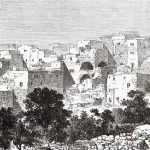
Lady with the Lamp

Between Land and Water

Is Ram Madhav BJP’s Best Bet As Next National President?
M o st popular, lessons from wayanad, the new great game.
Brahma Chellaney
How India Civilised Britain
Minhaz Merchant
Language: We Are Like That Only
Shashi Tharoor
Breakout Land
Rami Niranjan Desai
More C o lumns

Lady with the Lamp Antara Raghavan

Between Land and Water Areeb Ahmad

Is Ram Madhav BJP’s Best Bet As Next National President? Short Post
REC O MMENDED STORIES

Think Positive, Feel Positive
Open What Positive Affirmations Can Do

Your Future, Your Career
Open Navigating the best courses after 12th
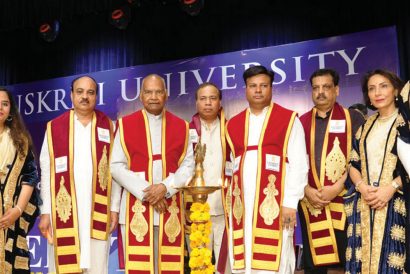
Sanskriti University
Open Hosted its fifth annual convocation ceremony for the graduating class of 2023 at its campus

© 2024 Open Media Network Pvt. Ltd.

Design & Developed by PixelVJ
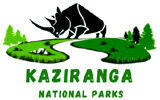
Tea Tourism in Assam

Assam, known for its enchanting natural beauty, is not only a land of blue hills, rivers, and wildlife but also a hub of extensive tea gardens. With tea being discovered in Assam in 1828, the state has become synonymous with rich, malty Assamese tea, making it the single largest tea-growing region globally.
Tea Industry and Heritage:
The tea industry plays a pivotal role in Assam’s economy, covering a vast area of 3,12,210 hectares and producing 507 million kg of tea. The state boasts the world’s largest tea estate, Monabari Tea Estate, located in Biswanath district. The city of Jorhat, often referred to as the ‘Tea Capital of the World,’ is central to the Assam tea culture.
Tea Tourism Concept:

Tea tourism, a contemporary concept, involves visitors experiencing the history, culture, and traditions associated with tea, along with participating in tea consumption. This concept is gaining popularity globally, with countries like China, Sri Lanka, and Kenya already embracing it.
Experiencing Tea Tourism:
Tea tourism in Assam offers visitors a chance to explore tea gardens, witness the tea-making process, and enjoy the cultural heritage of the tea tribes. The experience includes:
- Stay in Heritage Bungalows: Many tea estates have transformed their colonial-era bungalows into heritage resorts, providing tourists with a taste of luxury amidst the lush greenery of tea gardens.
- Tea Tasting Sessions: Tourists get to witness the entire tea-making process, from plucking to processing, grading, and packaging. Tea tasting sessions allow them to appreciate the nuances of different tea varieties.
- Cultural Exploration: Assam’s tea garden workers, with a unique history originating from various parts of India, have a distinct culture. Visitors can explore their songs, dances, and traditions.
- Proximity to Attractions : Tea estates in Assam are often located near major attractions like national parks (Kaziranga, Nameri), historical places (Sivasagar, Majuli), and wildlife sanctuaries, providing tourists with diverse experiences.
Best Time for Tea Tourism:

Tea tourism in Assam is most favored during the monsoon season, particularly from June to September. The lush greenery during this time enhances the overall experience.
Challenges and Opportunities:
While tea tourism in Assam holds immense potential, there are challenges such as wildlife conservation, habitat encroachment, and finding a balance between tourism and ecosystem protection. Responsible tourism practices and awareness about ecological significance are essential.
Future Prospects:
Tea tourism has the potential to contribute significantly to Assam’s economy, generating revenue, creating employment opportunities, and promoting rural development. Collaboration between the Assam Tourism Department and tea estate management can further enhance the tourism experience.
In conclusion, tea tourism in Assam is not just about enjoying a cup of tea; it’s a holistic experience that blends culture, heritage, and nature. With proper planning and promotion, Assam can position itself as a unique destination for tea enthusiasts and curious travelers, adding a new chapter to the state’s tourism narrative.
You can send your enquiry via the form below.
WhatsApp us
- Bar & Restaurant News
- Bar & Restaurant Expo
- Vibe Conference
- World Tea News
- World Tea Expo
- World Tea Academy
- Food Service & Hospitality
- Supply Chain
- Products & Innovation
- Tea Nerdery
Diary of a Tea Tourist: On Assam’s Majestic Tea Estates, Bungalows & Bonfires
“Tea is always a good idea,” and then “We are like tea, we don't know our own strength until we're in Hot Water”... and yet again, “Where there's tea there’s hope.” Indeed, each of the quotes eulogize the wonder drink that is tea.
Ever imagine how it actually feels to visit a tea estate? Or want to see how tea is processed in person? What about the environments surrounding tea estates or tea gardens? And what does a tea planter’s or tea farmer’s life really entail, and what’s the actual ambience of life inside a tea estate?
Of course, many who read World Tea News work in the tea industry and have traveled to tea estates… but not everyone has had that unique opportunity.
A Look at Tea Tourism
The fabled land of Assam in India’s colorful and majestic North East is among the world's top tea producing regions, producing around 400 million kgs of tea annually. It is a state where approximately 2,16,2000 hectares of land is under tea cultivation and “the jewel in the crown” of the 200 billion dollar global tea industry is India’s Tea City of Dibrugarh, which is blessed with a mind boggling 177 tea estates.
Today, residing in metropolitan Kolkata, which is separated by a distance of approximately 1445 Kms. from my paternal ancestor’s house in Dibrugarh, I consider myself fortunate for having been blessed with the privilege of growing up in one of the world’s most outstanding tea cities, to be able to experience the raw, energizing and eco-friendly world of tea.
Six months back, I had gone to Dibrugarh to attend the marriage ceremony of my cousin brother and memories of my childhood days flashed inside me. A lot has changed though – urbanization in particular and the mushrooming of high-rise apartments. Yet, this distinctive Assam town is unputdownable and it was good to experience tea tourism from a home grown entity – Purvi Discovery , a brand which has carved a niche for themselves as one of North East India’s best tour operators specializing in tea tourism. Being the pioneers in tea tourism, Purvi Discovery was the first tourism entity from the North East to convert their Victorian era tea bungalows to the discerning world travelers. They have numerous tea estates spread across Dibrugarh region and… oh, boy! Aren’t they awesome!?
Since I was in Dibrugarh for just a week , I concentrated my time at Mancoota and Chowkidinghee Tea Estates, both located within the town, and the immersive experience was stellar. It was every bit rejuvenating, especially those horse-riding trips across the tea estates and factories – one great way of recreating the typical colonial planter’s life, I imagine.
A Colorful History
Assam’s tea culture dates back to the 1800s British era, and most tea bungalows epitomize Victorian style architecture – elevated wooden stilts, usually two storied, spacious rooms with exclusive fireplace, bamboo and wooden decor, antique furnishings and large verandas. From the cozy confines of the bungalow, one can indulge in never ending cups of the famed Assam tea and relish the slow paced tea life; the sight of women tea pluckers engaged in plucking two leaves and a bud, and once the red molten ball dips across the far horizon, it’s time for bonfires and tribal folk musicians to entertain – surreal stuff isn’t it?
In Assam, the British left behind a rich legacy – the legacy of tea garden life. Since the planters were mostly of British or Scottish descent, they tried to recreate the quintessential British lifestyle here in India, and the best specimens of the Raj era are the outstanding tea bungalows – each one has a story to tell. And there are as many as 765 tea estates in Assam that produce approximately 13 percent of the world’s tea, per my research. That’s how stupendous the tea tourism scenario is in Assam.
Consider for instance the Mancotta Tea Estate story. It used to be a British tea estate until 1970 and the last British Superintendent was Duncan Hayes. Their tea bungalow is considered to be an iconic one, and the ingenuity of the British architect is very palpable. The standalone feature being the total absence of iron nails in the wooden floor. I was told by a staff of Mancota that the wooden nails that have been used in the flooring were of Chinese origin.Purvi Discovery had another excellent tea bungalow property located right in the heart of Dibrugarh town – The Chowkidinghee Tea Estate. I still remember going on a rickshaw every day in my youth to the Don Bosco school that would pass through the famed Chowkidinghee Tea Estate.
The Chowkidinghee Tea estate has been in existence for a long time, and the piece de resistance is the gracious bungalow, which has been catering to the high-end visitors with a degree of sophistication that is hard to match. This heritage property has withstood the test of times – earthquakes, floods, etc., and yet remains a sentinel of colonial hospitality. Be it the Victorian decor, the fireplace or the intricately done up “Jaali” verandas, you can rest assured of the finest colonial hospitality and a perfect recap to the vestiges of its rich virile past.
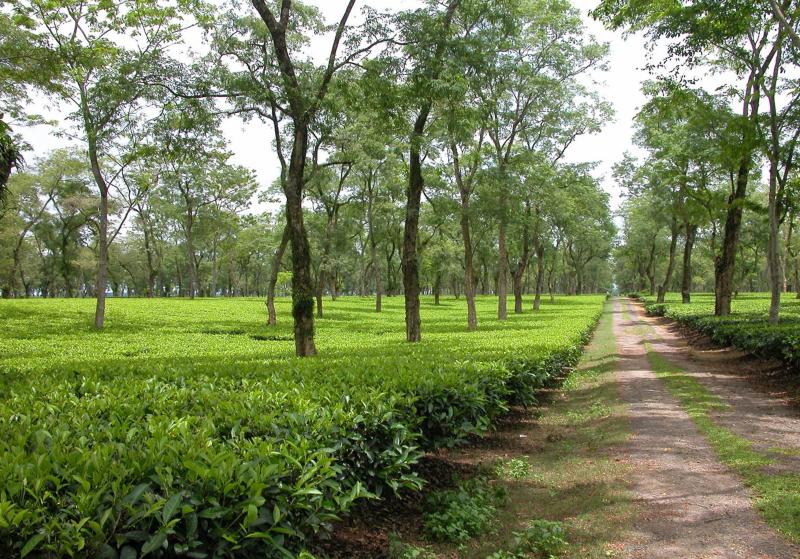
Where Some of the Finest Varieties of Tea Are Produced
What makes Dibrugarh such a tea-friendly place? Well, my father who’s educated in agriculture and served in the Department of Agriculture for the Government of Assam, believes that Dibrugarh’s alluvial soil and it being off-course for tropical weather, in addition to a pronounced monsoon and temperature range between 51°F to 88°F, makes it ideal for tea crops to flourish.
Apart from being India’s tea town, Dibrugarh is also one of Assam’s largest urban agglomerations. Together with the districts of Tinsukia and Sibsagar, it produces 50 percent of India's famed Assam tea variety, whose trademark features are full bodied taste, strong aroma and its burgundy color.
After China, it is India’s North Eastern state of Assam where some of the finest varieties of tea are produced; and that too in huge quantities. An hour’s drive from Dibrugarh to the world famous Halmari Tea Estate could be a revelation.
Since my childhood, I have been a regular visitor to this awe-inspiring tea estate, and I still have my extended family who are residents of Moran, which is where Halmari is located.
Spread over 374 hectares of land and blessed with a century’s old tea legacy, Halmari Tea holds the distinction of being the highest priced Indian tea. The estate produces some of the finest varieties of CTC and Orthodox teas. Needless to say, you will find Halmari teas in some of the world’s finest hotels and in places, like Harrods. I will never forget that first sip of “Halmari 22K Gold Tea” packet that was gifted to me by my first cousin, who resides in Moran and lives in close proximity to Halmari Tea Estate. WOW!
In fact, earning accolades has become a habit with Halmari Estate – it won a best factory in the world award, as well as a Global Tea Championship Award consecutively from 2015 to 2019. That all speaks volumes about this tea estate’s rendezvous with all things good and excellent. In the words of Krishan Katyal Chairman of J Thomas and Co. and one of the world’s largest tea auctioneers, “Halmari has chosen not to sit on its laurels. They have been working to improve and it is paying now. It is no more a tea brand, it is a prized possession.”
As one of Harrods Best 9 Garden Fresh Tea Producers, a visit to Halmari is an education in itself – the manner in which the estate maintains the ethos of sustainability, their corporate social responsibility (CSR) initiatives, as well as their state of the art machineries, is exemplary to say the least.
Dibrugarh Growth, Producing Connoisseur Category Tea
This riverside town of Dibrugarh bore the brunt of the devastating earthquake of 1950 that measured 8.6 on the Richter scale and altered the course of River Brahmaputra. Old timers of the town vouch for the fact that more than three fourths of the town is still buried under water. Ever since then, Dibrugarh rose like a phoenix out of the debris of the earthquake and has positioned itself as India’s Tea Capital.
To further elevate the commercial status of this quaint Assamese town and to bring it on par with global cities, the Government of India, through the Ministry of DONER as well as the Ministry of Ports, Shipping and Inland Waterways, have earmarked Dibrugarh for accelerated infrastructure developments.
Although tea tourism as a recreational concept is rather immersive, not many have opened up their estates to visitors, the primary reason being paucity of funds. A mechanism has to be found to make tea tourism happen on a grand scale, including liberal financial assistance to small tea growers, to bring additional revenue to tea-driven economies.
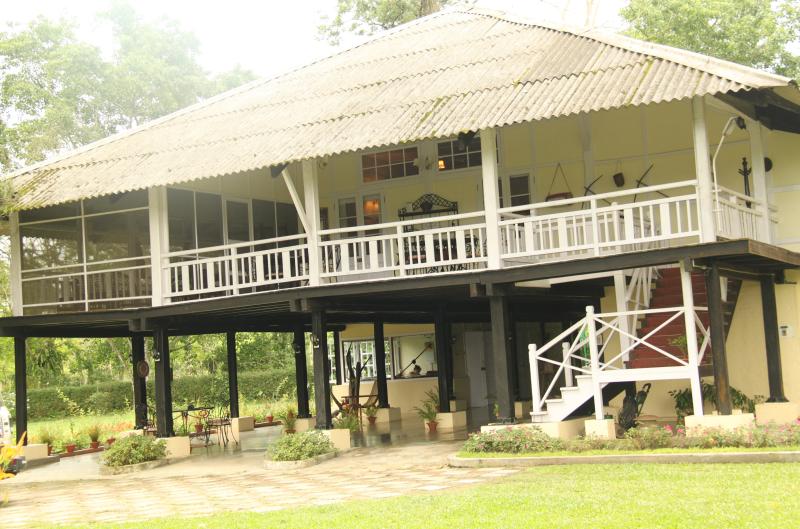
The tea estates surrounding Dibrugarh has been producing connoisseur category tea for more than a century and this region could be an ideal aspirant for the UNESCO World Heritage Site (Natural) list. This would not only confer a prestigious crown in the cap of India’s Tea industry, but also give a further boost to the industry by luring the discerning visitors to come and savor tea holidays in this part of the world.
As the tourism industry keeps on evolving and increasingly gets closer to nature, it is expected of all the stakeholders – like the government and big players in the tea industry – to design and curate holidays that are quintessentially tea-centric.
The aspect of connectivity too needs to be revamped. Although rail, road and air connectivity has witnessed rapid growth, the maritime sector is in deep regress, in spite of the fact that one of the world’s most turbulent rivers – the legendary River Brahmaputra – flows through the entire length and breadth of Assam.
However, now with India’s Minister of Shipping – Shri Sarbananda Sonowal, who is the son of the soil from Dibrugarh and one of the most dynamic leaders at the national level – a slew of infrastructure developments are ready to take off, particularly multi-modal connectivity in the form of Prime Minister Narendra Modi’s PM Gati Shakti. A National Master Plan that envisions seamless connectivity in the North East is on the horizon.
The importance he attaches to his hometown can be gauged by his recent press bytes at the Waterways Conclave 2022 – “Dibrugarh was an important contributor to India's economic growth. Steps are being taken to once again make Dibrugarh a major river port of the country. The opportunities provided by PM Shri Narendra Modi in developing the NW 2(Brahmaputra) and NW 16(Barak) is leveraging our connectivity with Bangladesh and giving us the route to reach markets of the world.”
In the end, if tea didn’t exist, Assam may have perished. Where there is tea, there is hope.
For further information on tea holidays in Assam, visit PurviDiscovery.com .
Subhasish Chakraborty has been working as a travel journalist for the past two decades and has been editorially involved with numerous international in-flight magazines for renowned airlines such as Cathy Pacific, Dragon Air, Bhutan Airlines, Air Asia, Airport Authority of India, etc. He was also involved with the UNWTO (World Tourism Organization) as a consultant, and is based in West Bengal, India.
Plan to Attend or Participate in the World Tea Conference + Expo, March 27-29, 2023
To learn about other key developments, trends, issues, hot topics and products within the global tea community, plan to attend the World Tea Conference + Expo, March 27-29, 2023 in Las Vegas, co-located with Bar & Restaurant Expo . Visit WorldTeaExpo.com .
To book your sponsorship or exhibit space at the World Tea Conference + Expo, or to enquire about advertising and sponsorship opportunities at World Tea News, contact:
Ellainy Karaboitis-Christopoulos Business Development Manager, Questex Phone: +1-212-895-8493 Email: [email protected]
Also, be sure to stay connected with the World Tea Conference + Expo on social media for details and insights about the event. Follow us on Twitter , Facebook , Instagram and LinkedIn .

Top Tea Gardens in Assam- Guide 2024

Sprawling beside the magnificent Brahmaputra River in the Northeast, Assam is a perfect amalgamation of modernisation and ancient history. While the age-old temples take you back in history, its electric ambience and vibrant nightlife keeps up with the modern times. The mighty Brahmaputra River carries tales which are thousands of years old. A city shaped by time, there are plenty of things to do in Assam. Assam is blessed with lush green mountains, majestic ridges, adventure sports, scenic viewpoints and the destination is well known for its astonishing tea gardens. Assam is the tea hub of India. There are several tea gardens in Assam which will leave you agape in amazement.
Imagine yourself waking up to the pleasant view of the massive tea gardens and where the tea leaves are being plucked for your morning tea and served fresh for you. Dreamy isn’t it? Assam is the place to go and make this dream real. Assam is a paradise which is housed with magnificent and refreshing tea gardens. These tea gardens have been cultivated for ages now and it brings happiness to every household. Here’s a list of famous tea estates that you must explore on your next trip to Assam.
Top 11 Tea Estates in Assam that are a must-visit
Nonoi tea estate.

Nonoi Tea Estate spreads across an area of 959.17 hectares, this tea estate is located at an altitude of 225 metres above sea level where the tea plantations are harvested. People in Assam call the Nonoi Tea Estates the Rangamati, which refers to the name of the waterfalls called Noi-Noi in the colloquial British language, hence the name “Nonoi” was given.
Jaw-dropping Deals: Up to 50% OFF - Book Now & Travel Later
Book jaw-dropping travel deals and save big on your trip. Up to 50% Off - Book Now & Travel Later - No Cost EMI
Monabarie Tea Estate

As you step down at Monabarie Tea Estate, you will be carried away by the heavenly aroma of the tea leaf. This heavenly Tea Estate is situated at the Biswanath Chariali district of Assam. This is the largest Tea Estate in Assam and all over Asia. Owned by McLeod Russel India Limited, Monabarie Tea Estate is spread across the area of 1158 hectares, and the red coloured leaves of the tea will definitely give your morning a rejuvenating start.
Almari Tea Estate

For the past 120 years, the tea garden in Moran district of Assam, Halmari Tea Estate is carrying along with it the legacy of the finest quality of tea. The tea garden is one of the oldest in Assam and is spread across an area of 374 hectares. Their CTC and Orthodox tea production have managed to win the highest price of a Tea Estate in Assam. Don’t miss out on tasting the Halmari tea which will leave you craving for more.
Manohari Tea Estate
These renowned tea gardens in the Northern region of Assam, have been bringing fresh cups of morning tea since the British era, These gardens are at an elevation of 390 ft above sea level along the Indian-Burmese border and covered by tea bushes close to 1800 acres and 1000 acres.

Also read: Tourist Places to visit in Assam
Mangalam Tea Estate
Situated beside a government reserve forest which shelters varied wildlife, Mangalam Tea Estate is spread across an area of 117.99 hectares. It has been undertaken by Jayshree Tea industries in 1955. Situated across the Towkok river, the Tea Estate has served good quality tea throughout the year and has now entered into the production of CTC and Orthodox tea.

Wild Mahseer Tea Estate
Built-in 1864 by the British Assam Tea Company, the Tea garden, located at the outskirts region of Tezpur , this Tea Estate is situated at a distance of 30 minutes from the Jia Bhoroli River and covering an area of 22 acres of tea bushes. The Tea garden has a beautiful blend in the architecture which has a colonial and Assamese touch and will give you a glimpse of the lifestyle of the Raj-era tea planters.
Corramore Tea Estate
The Corramore Tea Estate was founded by Robert Logan. This heritage Tea Estate is situated in Hatigarh of Darrang district of Assam and spreads across an area of 480 hectares land. The Tea garden focuses on the harvesting of Camellia sinensis species. Holding a family heritage of over 100 years, the Tea Estate is now owned by the Williamson Tea.
Ghograjan Tea Estate
This tea estate located on the alongside the Ghagra River was started in the early 1930s and has been carrying the legacy for the past 5 generations. The name “Ghograjan” means small river and the name was derived from this river. One of the largest tea gardens in Assam, Ghograjan is spread across an area of 350 acres and has gained trust with their quality in producing CTC and the finest Orthodox tea in the region.
Harmutty Tea Estate
One of the oldest and beautiful Tea Estates, Harmutty is located alongside the Dikrong river. The Tea Estate got its name from the Queen of Hirmati. The Tea Estate is a picturesque location in Assam with a backdrop of the hills of Arunachal Pradesh. From 1870 the Harmutty Tea Estate in Assam has been producing strongly brewed high-quality tea leaves for a relaxing tea break.
Khongea Tea Estate
Khongea is one of the top-ranked Tea Estates in Assam. The Tea Estate was established by Britishers and started its production in the year 1949. Resting alongside the banks of the Brahmaputra river, Khongea Tea Estate is located at the topmost region of Assam. Get amazed by the view of the golden tipped tea leaves while taking a sip of your special strong Assam tea in Khongea Tea Estate.
Also read: Places to visit in Silchar Assam
Joonktollee Tea Estate
The Joonktollee Tea Estate is the only one holding a single largest tea factory in Assam. Spread across an area of 1867.98 acres, the Joonktollee Tea Estate is situated at the Barham district of Assam. Out of 1867.98 acres, 1202.82 acres is used for tea plantation. The Joonktollee Tea Estate has been SGS, UK for production and manufacture of CTC, Orthodox and Green Tea.
Assam tea gardens are one of the most beautiful locations in India and should be experienced with your partner and loved ones. Savour some of the best quality tea during your vacation. For more information on tourist attractions in India, click right here. You can also log onto pickyourtrail.com for some amazing travel packages . Have a good tea break!
141 Posts Published.
Related itineraries.

Stunning 6 Nights Northern Lights Packages
- Flights excluded
- 4 star accommodations
- 3 activities
- Transfers excluded
₹ 64,954
Starting price/person

Fantastic 6 Nights Finland Northern Lights Tour Package
- 2 activities
- Shared transfer
₹ 69,369
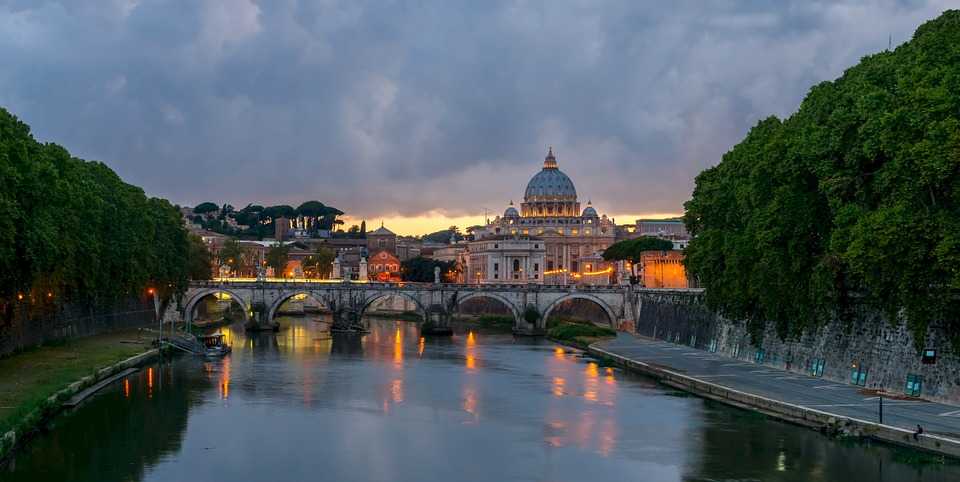
Beautiful 10 Nights Italy Honeymoon Package
- Flights included
- 9 activities
- Private transfer
₹ 1,32,869
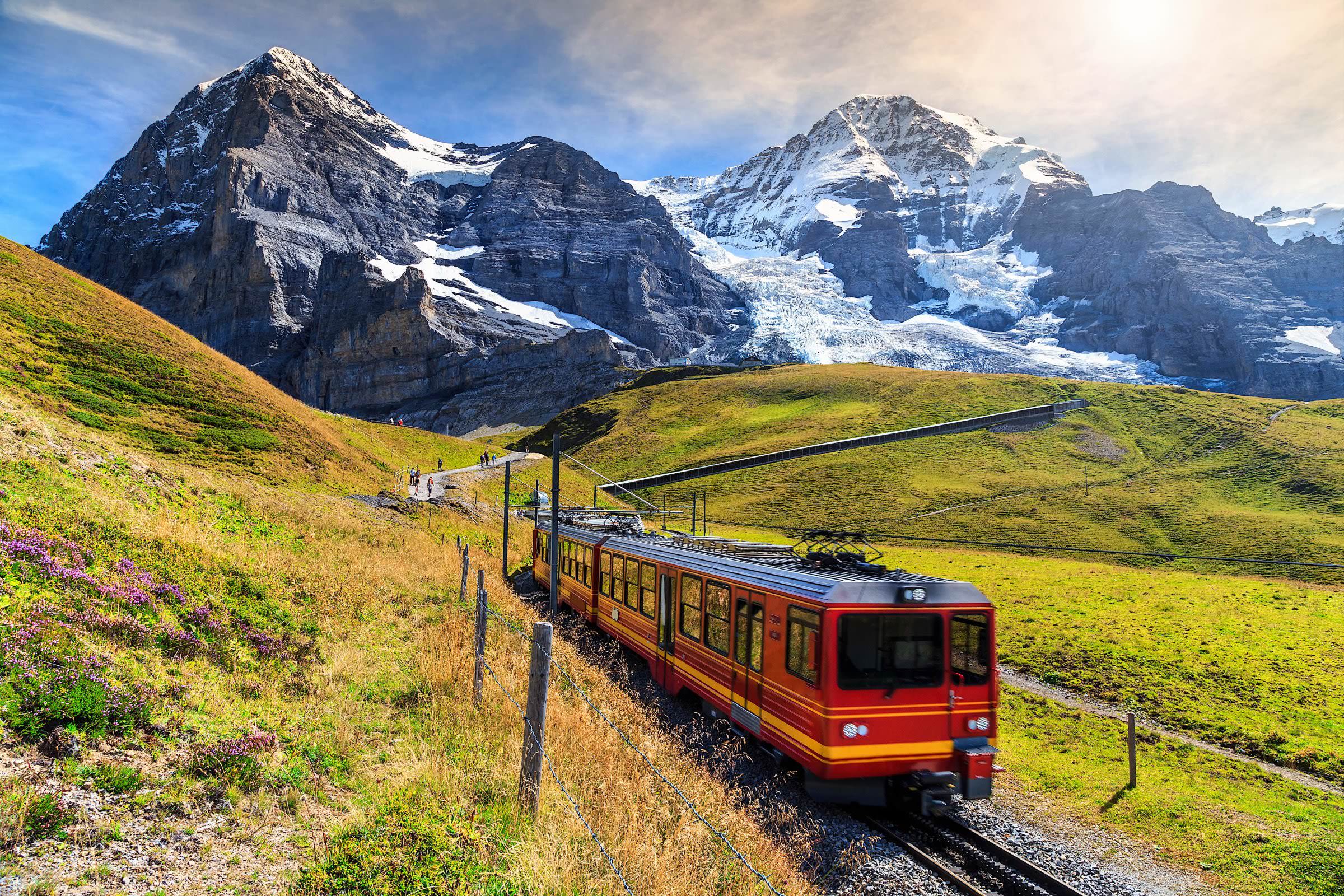
Ideal 6 day Switzerland Tour Packages for Family
- 3 star accommodations
₹ 99,112
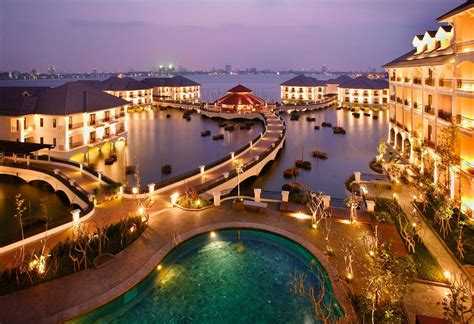
Romantic 8 Nights Bali and Vietnam Honeymoon Packages
- 6 activities
₹ 99,947
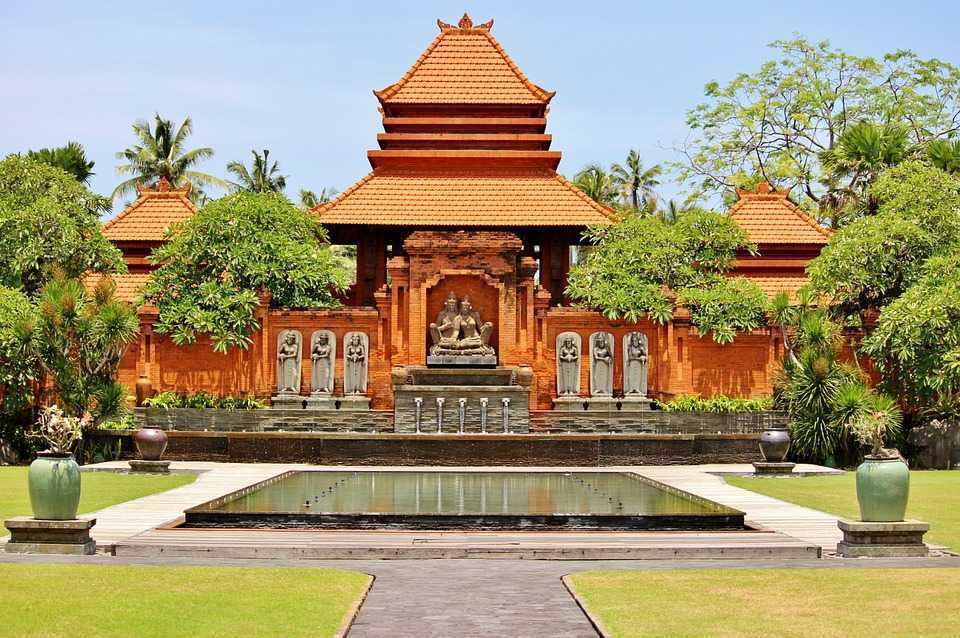

Gorgeous 9 Nights Singapore Bali Honeymoon Packages
- 4.5 star accommodations
₹ 90,953
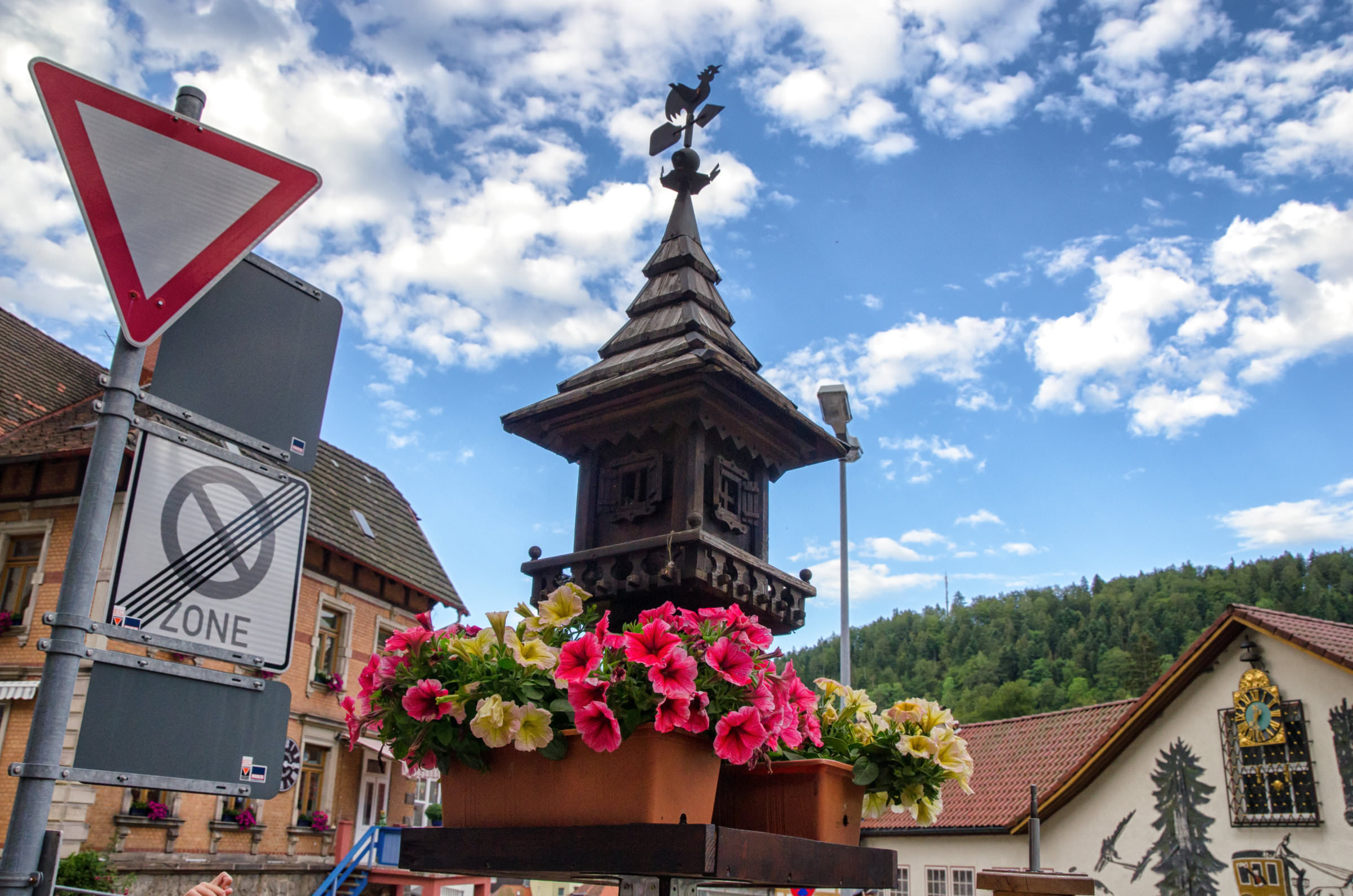
Magical 9 Nights Germany Vacation Packages
- 8 activities
₹ 79,832
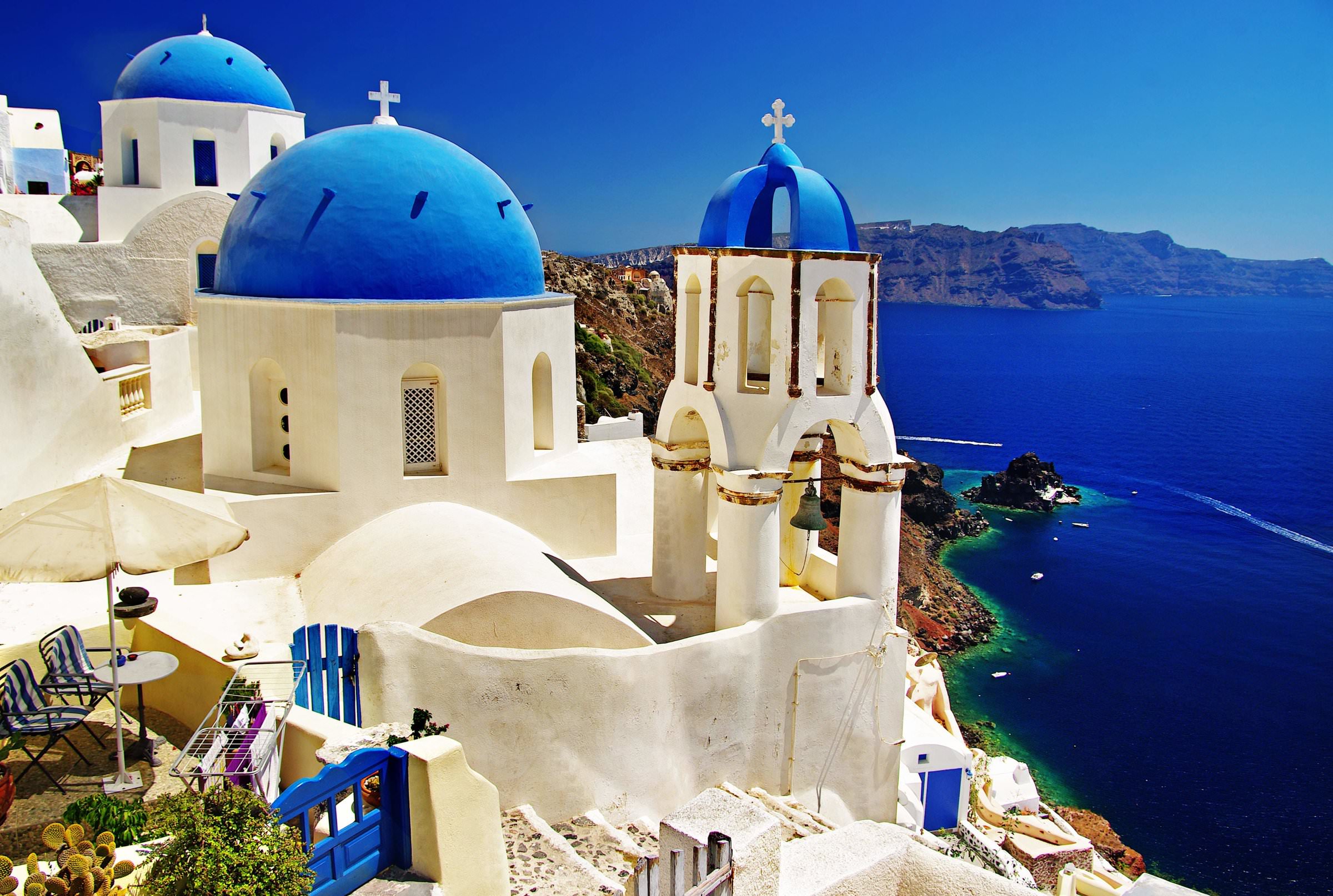
Scenic 10 Nights Greece & Turkey Vacation Packages
- 5 star accommodations
₹ 60,718
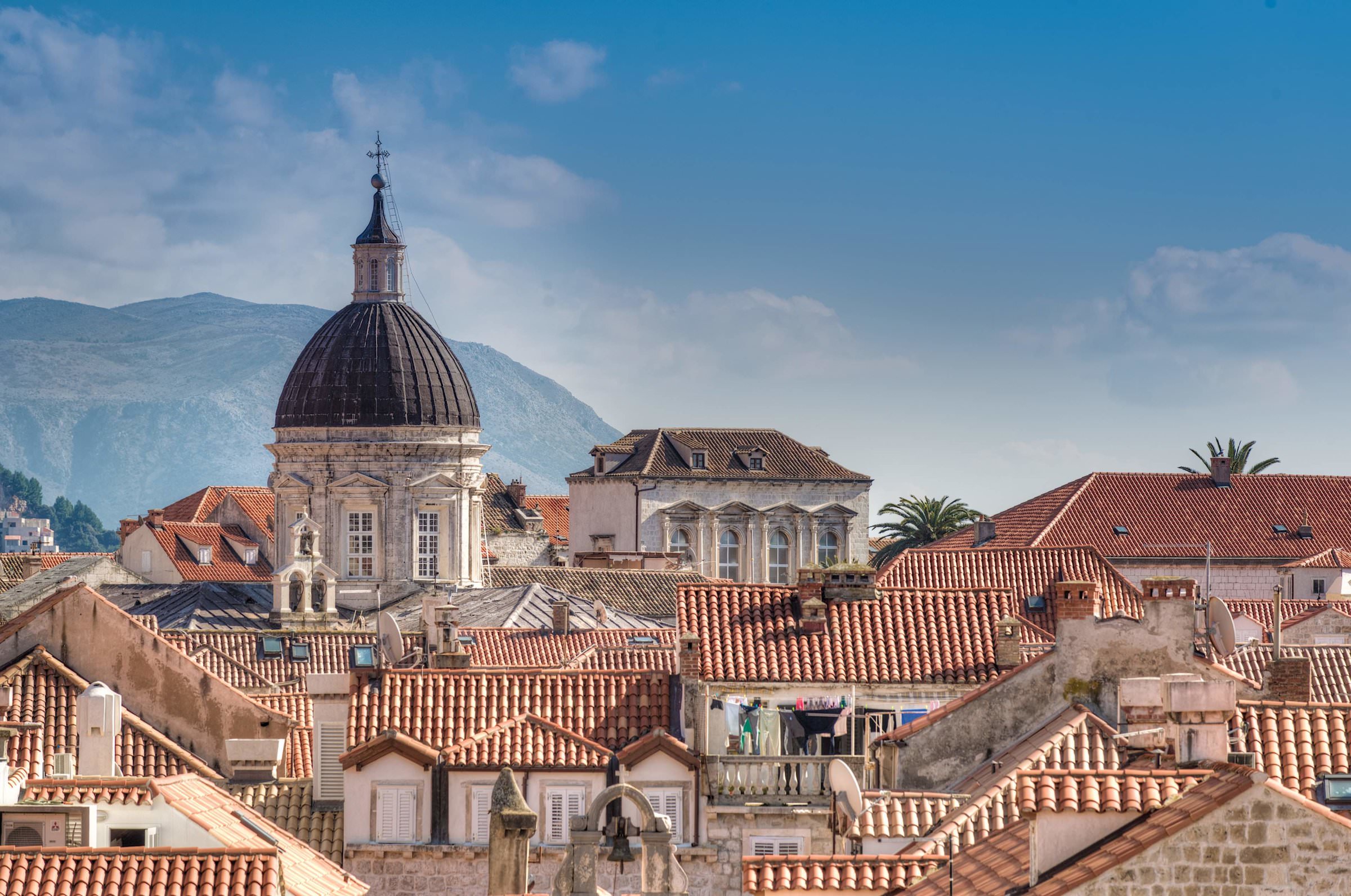
Magical 7 Nights Croatia Tour Packages
- 10 activities
₹ 57,778
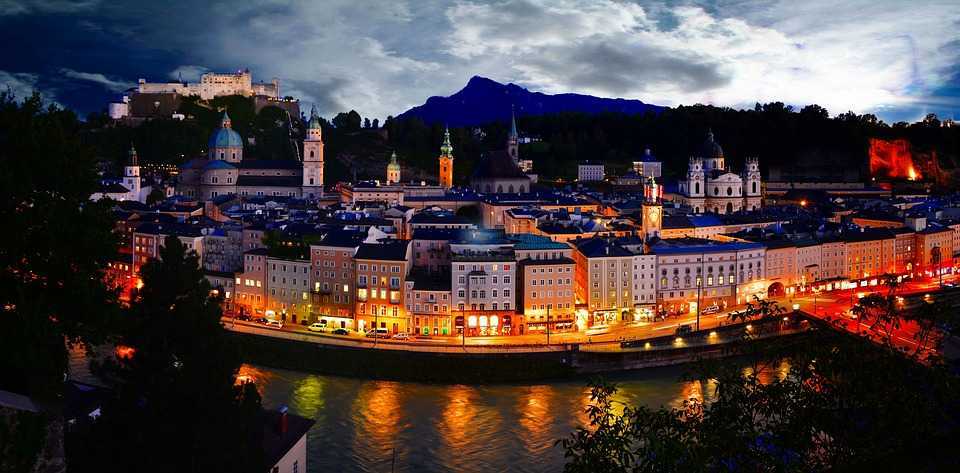
Beautiful 10 Nights Amsterdam Tour Package
₹ 1,84,115, related posts, kakochang waterfalls in assam – cascading beauty, adventure sports in northeast india – get your adrenaline rushing, awesome assam: top places to visit in the city of sivasagar, explore the seven sisters of india: an unforgettable adventure, travel guide to assam – everything you need to know, top wildlife sanctuaries in assam – explore the wild, assam’s historic places: a must-visit for history buffs, top 6 temples to visit in assam – sacred trails, explore the culture of awesome assam, shopping in assam – best shopping places for shopaholics, shopping spree in the streets of guwahati, assam, gateway to heaven: immerse in the natural beauty of assam.
Book a vacation completely online
Our community is growing fast
Sign up for exclusive PYT Club membership and access jaw-dropping deals before the rest of the world!
- Signup with Email
- Facebook community
- Telegram Community
Access exciting travel deals at best prices
Trending Searches on Packages Bali Packages Thailand Tour Package Singapore Tour Package Australia Tour Packages
Trending Searches on Honeymoon Packages Maldives Honeymoon Package Bali Honeymoon Package Thailand Honeymoon Packages Singapore Honeymoon Package Australia Honeymoon Packages
Trending Searches on Packages From India Bali Tour Packages From India Thailand Packages From India Singapore Packages From India Australia Tour Packages From India
Trending Searches on Packages Cost From India Bali Trip Cost From India Thailand Trip Cost From India Singapore Trip Cost From India Australia Trip Cost From India
- New Zealand
- South East Asia
- United Kingdom
- United States
- Switzerland
- Travelogues
- Travel News
- Guest Posts
- Write for us

- Call +91 9212553107

09 Feb, 2024
The new initiative of tea estate tourism at kaziranga national park.
Great news for individuals planning a trip to the Northeast region of India! Kaziranga National Park which is home to the largest number of one-horned rhinos shares some thrilling news as it attempts to offer a chance for visitors to experience tea tourism in Assam. The initiative will come into action starting from February 2024.
Kaziranga’s New Tea Tourism Initiative lead Towards
The new initiative of the park will allow visitors to explore the lush green tea estate around Kaziranga, and visit the tea factories around the region to learn and understand how Assam’s CTC, traditional or green tea is organically grown and prepared amid the greeneries. During the tea estate tours, visitors will also get a chance to taste the flavour and scent of the tea leaves grown around.
Tea tourism in Kaziranga will showcase the beauty of Assam tea plantations along with the art of tea cultivation and production. The huge influx of tourists was seen after the initiatives launched by the park. This will also help the local businesses to earn profit along with reservations at resorts and hotels around, further contributing to the overall growth of the region.
Tourism in Kaziranga

Kaziranga National Park is listed in the UNESCO National Heritage Site as it is a tourist destination and conservation area which serves as a refuge for the Rhino hub along with several other wildlife species such as the Asian Elephant, the Asian Water Buffalo, Bengal Tigers, Swamp Deers, etc. The Kaziranga National Park is a perfect blend of grasslands and wetlands which attract tourists from several parts of the world.
Tourism in Kaziranga was highly affected during the time of global pandemic, Covid-19 which gave the idea to the park authorities to start several initiatives to attract more tourists, one such initiative is to explore Assam's tea culture by strolling the tea gardens of Kaziranga National Park. The initiatives not only promote cultural heritage but also delight the hearts of both residents and foreign visitors.
The park observed a record after the Covid-19 initiatives, the Kaziranga National Park and Tiger Reserve authorities witnessed over 1.7 lakh tourists including foreign visitors from October 2023 to January 2024. The data states that around a 4% rise in tourist arrival was seen since the Initiatives launched.
The park has also started cycling opportunities in Kohora, Jeep Safaris in Panpur and Boat Safari in Biswanath Wildlife Division which will lead tourists to visit the unexplored destinations within the Northeast region of the country.
Kaziranga National Park News Inputs.
Other Interesting Blogs to Read
- Rare Golden Tiger Sighting at Kaziranga National Park
- Best Tourist Destinations in Assam
- The Rhino Population of Kaziranga National Park in Assam Rises
- Best Places to Visit in Kaziranga National Park
- Interesting Facts About Kaziranga National Park
- Importance of the Conservation of Greater One-Horned Rhinos
- Best Wildlife Resorts to Stay in Kaziranga
- Top 10 Reasons to Visit Kaziranga Tiger Reserve in Assam
Popular Posts

Popular Tea Gardens to Visit in Assam, North East ...

Best Tourist Attractions to Visit in Kaziranga Nat...

Discovery of Striped Caecilian in Kaziranga Nation...
Recent Posts

Kaziranga Receives 20 Rubber Boats to Counter Poac...

Surge in Tourists at Kaziranga National Park After...

Assam’s Kaziranga National Park Bags 4 Awards fo...
Select Country Afghanistan Albania Algeria American Samoa Andorra Angola Anguilla Antigua and Barbuda Argentina Armenia Armenia Aruba Australia Austria Azerbaijan Azerbaijan Bahamas Bahrain Bangladesh Barbados Belarus Belgium Belize Benin Bermuda Bhutan Bolivia Bonaire Bosnia and Herzegovina Botswana Bouvet Island (Bouvetoya) Brazil British Indian Ocean Territory British Virgin Islands Brunei Darussalam Bulgaria Burkina Faso Burundi Canada Cambodia Cameroon Cape Verde Cayman Islands Central African Republic Chad Chile China Christmas Island Cocos (Keeling) Islands Colombia Comoros Congo Congo Cook Islands Costa Rica Cote d'Ivoire Croatia Cuba Curaçao Cyprus Cyprus Czech Republic Denmark Djibouti Dominica Dominican Republic Ecuador Egypt El Salvador Equatorial Guinea Eritrea Estonia Ethiopia Falkland Islands (Malvinas) Faroe Islands Fiji Finland France French Guiana French Polynesia French Southern Territories Gabon Gambia Georgia Georgia Germany Ghana Gibraltar Greece Greenland Grenada Guadeloupe Guam Guatemala Guernsey Guinea Guinea-Bissau Guyana Haiti Heard Island and McDonald Islands Holy See (Vatican City State) Honduras Hong Kong Hungary Iceland India Indonesia Iran Iraq Ireland Isle of Man Israel Italy Jamaica Japan Jersey Jordan Kazakhstan Kazakhstan Kenya Kiribati Korea Korea Kuwait Kyrgyz Republic Lao People's Democratic Republic Latvia Lebanon Lesotho Liberia Libyan Arab Jamahiriya Liechtenstein Lithuania Luxembourg Macao Macedonia Madagascar Malawi Malaysia Maldives Mali Malta Marshall Islands Martinique Mauritania Mauritius Mayotte Mexico Micronesia Moldova Monaco Mongolia Montenegro Montserrat Morocco Mozambique Myanmar Namibia Nauru Nepal Netherlands Netherlands Antilles New Caledonia New Zealand Nicaragua Niger Nigeria Niue Norfolk Island Northern Mariana Islands Norway Oman Pakistan Palau Palestinian Territory Panama Papua New Guinea Paraguay Peru Philippines Pitcairn Islands Poland Portugal Puerto Rico Qatar Reunion Romania Russian Federation Rwanda Saint Barthelemy Saint Helena Saint Kitts and Nevis Saint Lucia Saint Martin Saint Pierre and Miquelon Saint Vincent and the Grenadines Samoa San Marino Sao Tome and Principe Saudi Arabia Senegal Serbia Seychelles Sierra Leone Singapore Sint Maarten (Netherlands) Slovakia (Slovak Republic) Slovenia Solomon Islands Somalia South Africa South Georgia & S. Sandwich Islands Spain Sri Lanka Sudan Suriname Svalbard & Jan Mayen Islands Swaziland Sweden Switzerland Syrian Arab Republic Taiwan Tajikistan Tanzania Thailand Timor-Leste Togo Tokelau Tonga Trinidad and Tobago Tunisia Turkey Turkey Turkmenistan Turks and Caicos Islands Tuvalu U.S. Virgin Islands U.S. Minor Outlying Islands Uganda Ukraine United Arab Emirates United Kingdom United States Uruguay Uzbekistan Vanuatu Venezuela Vietnam Wallis and Futuna Western Sahara Yemen Zambia Zimbabwe
Useful Links
- Kaziranga Tours
- Wildlife Safari
- Kaziranga Weekend Package
- Kaziranga Rhino Tour
- Splendor of Assam
- Sights of Assam
- North East India Tour with Kaziranga
- North East India Monasteries Tour
- Tour of Tea Fields
- East India Tribal Trail
- Rhino Tour with Living Roots Bridge
- The Vitality in North Eastern Wild
- Rhino with Hoolock Gibbons
- Kaziranga Photography Tour
Our Sales Office
C-81C, Sector-8, Noida
+ 91 -120 -4052601-99(85 hunting lines)
Connect with Us

Kaziranga National Park. All rights reserved. © 2024

Arrival Date
Departure Date
Country —Please choose an option— Afghanistan Albania Algeria American Samoa Andorra Angola Anguilla Antigua and Barbuda Argentina Armenia Armenia Aruba Australia Austria Azerbaijan Azerbaijan Bahamas Bahrain Bangladesh Barbados Belarus Belgium Belize Benin Bermuda Bhutan Bolivia Bonaire Bosnia and Herzegovina Botswana Bouvet Island (Bouvetoya) Brazil British Indian Ocean Territory (Chagos Archipelago) British Virgin Islands Brunei Darussalam Bulgaria Burkina Faso Burundi Canada Cambodia Cameroon Cape Verde Cayman Islands Central African Republic Chad Chile China Christmas Island Cocos (Keeling) Islands Colombia Comoros Congo Congo Cook Islands Costa Rica Cote d'Ivoire Croatia Cuba Curaçao Cyprus Cyprus Czech Republic Denmark Djibouti Dominica Dominican Republic Ecuador Egypt El Salvador Equatorial Guinea Eritrea Estonia Ethiopia Falkland Islands (Malvinas) Faroe Islands Fiji Finland France French Guiana French Polynesia French Southern Territories Gabon Gambia Georgia Georgia Germany Ghana Gibraltar Greece Greenland Grenada Guadeloupe Guam Guatemala Guernsey Guinea Guinea-Bissau Guyana Haiti Heard Island and McDonald Islands Holy See (Vatican City State) Honduras Hong Kong Hungary Iceland India Indonesia Iran Iraq Ireland Isle of Man Israel Italy Jamaica Japan Jersey Jordan Kazakhstan Kazakhstan Kenya Kiribati Korea Korea Kuwait Kyrgyz Republic Lao People's Democratic Republic Latvia Lebanon Lesotho Liberia Libyan Arab Jamahiriya Liechtenstein Lithuania Luxembourg Macao Macedonia Madagascar Malawi Malaysia Maldives Mali Malta Marshall Islands Martinique Mauritania Mauritius Mayotte Mexico Micronesia Moldova Monaco Mongolia Montenegro Montserrat Morocco Mozambique Myanmar Namibia Nauru Nepal Netherlands Netherlands Antilles New Caledonia New Zealand Nicaragua Niger Nigeria Niue Norfolk Island Northern Mariana Islands Norway Oman Pakistan Palau Palestinian Territory Panama Papua New Guinea Paraguay Peru Philippines Pitcairn Islands Poland Portugal Puerto Rico Qatar Reunion Romania Russian Federation Rwanda Saint Barthelemy Saint Helena Saint Kitts and Nevis Saint Lucia Saint Martin Saint Pierre and Miquelon Saint Vincent and the Grenadines Samoa San Marino Sao Tome and Principe Saudi Arabia Senegal Serbia Seychelles Sierra Leone Singapore Sint Maarten (Netherlands) Slovakia (Slovak Republic) Slovenia Solomon Islands Somalia South Africa South Georgia & S. Sandwich Islands Spain Sri Lanka Sudan Suriname Svalbard & Jan Mayen Islands Swaziland Sweden Switzerland Syrian Arab Republic Taiwan Tajikistan Tanzania Thailand Timor-Leste Togo Tokelau Tonga Trinidad and Tobago Tunisia Turkey Turkey Turkmenistan Turks and Caicos Islands Tuvalu U.S. Virgin Islands U.S. Minor Outlying Islands Uganda Ukraine United Arab Emirates United Kingdom United States Uruguay Uzbekistan Vanuatu Venezuela Vietnam Wallis and Futuna Western Sahara Yemen Zambia Zimbabwe
No of Person

The Assam Tribune
- Dainik Asam
- Entertainment
- Photo Stories
- International
- Health & Fitness

Tea industry needs to flourish to develop Assam in tea tourism sector

Guwahati, Sep 27: They say you haven't woken up if you have not sipped Assam tea which has a unique aroma that separates itself from the rest of the tea available around the world.
According to the Tea Board India -- Assam Tea has a rich, deep-amber colour and is famous for its rich, full-bodied cup. It is known for its brisk, strong and malty character, making it a perfect tea to wake up to. The distinctive orthodox Assam teas are valued for their rich taste, bright liquors and are considered to be one of the choicest teas in the world.
"What makes Assam tea distinctive from the Darjeeling or the Nilgiris is the briskness of the tea and its colour which is not found anywhere else," said Dr Pritam Choudhury, Scientist at Tocklai Research Institute.
The taste of the strong tea, grown on the rolling plains by the Brahmaputra river is crafted by the region's soil, climate and rainfall which equally contribute to the uniqueness of the tea. "Assam soil is acidic for which the briskness is available in the tea and the climate here is tropical and that's why it is unique," added Choudhury.
Assam produces both Orthodox and CTC varieties of tea. While orthodox refers to loose-leaf tea that is produced using traditional (or orthodox) methods of tea production, which involve plucking, withering, rolling, oxidation/fermentation and drying, CTC involves making large quantities of black tea with the help of machinery or crush-tear-curl method. The Assam orthodox variety has already been conferred with a GI tag.
Of late, tea as a tourism potential has gained momentum and if capitalised well, it can be promoted in lines of the famous French vineyard, which apart from boosting tourism in the State, will also provide employment opportunities to the locals.
"Very few people are aware of the varieties of tea in Assam, this consolidates the way tea is being prepared. Tea culture needs to be developed, although it is still at a nascent stage, tea has enough potential in the tourism sector," informed Choudhury.
The relics of the colonial era have been well preserved in the tea estates of Assam. The lush green tea gardens, golf courses, century-old trees and bungalows of the tea estates speak for themselves. A stay in the tea garden, playing golf and a first-hand experience of plucking the two leaves and a bud and indulging in tea tasting sessions undoubtedly renders an unforgettable experience.
While Assam produces more than 50% of total tea in the country, the State famous for tea in the recent past has been a sought-after destination when it comes to tourism. Moreover, the State government has also stepped up efforts to promote tea tourism in the State.
Assam Chief Minister Himanta Biswa Sarma, in February this year expressed his intention for the development of the tea industry. He also proposed a move to support 40 tea gardens to develop tourist resorts and promote tea tourism in State.
The State budget has this year earmarked Rs 50 crore as capital infrastructure support for building guest houses and tourist facilities inside selected tea gardens. Apart from generating revenue for the State exchequer, this step will also help in augmenting income for the tea gardens.
Offbeat activities like plucking tea leaves, trekking, tea tasting, and understanding different varieties of tea, the idea is not just an escapism from the concrete world into the serene surroundings, but also of learning and experiencing heritage.
However, there are several factors that need to be looked upon before the tourism segment of the industry. "To be honest, tea tourism has a lot of potentials, but there are several challenges that need to be considered. Only a flourishing tea industry can cater to the tourism sector," said Rituraj Sharma, Information Officer, Tocklai Tea Research Institute, Jorhat.
The Tocklai Tea Research Institute is the oldest & largest tea R&D organisation. It is largely instrumental in making tea industry commercially viable in India.
The tea industry is facing stiff competition from new tea-producing countries, steadily declining price of tea, high cost of production, labour issues, deficit rainfall due to climate change etc.
"Tea tourism is ultimately related to the health of the tea industry, the valuation of tea needs to be improved, and when the tea industry flourishes only then you can think about tea tourism. Although on a smaller scale it is still happening but to be counted upon as a major tourism segment it's a long way to go," Sharma informed.
Sharma further suggested that it is necessary to identify all the tourism hotspots and develop it so that it can cater to the concerned sector.

- guwahati News
Assam govt pumps in money to boost tea tourism
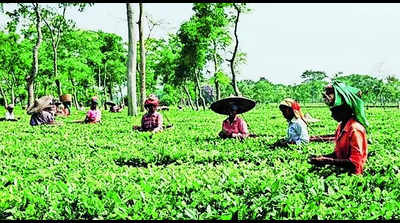
Visual Stories

- International
- Food and Drink
- Places of Interest
- Sustainable
- What's new
- Celebrating People
- Hall of Frame
- Responsible Tourism
- MP on my Mind
- MP Wellness
Savouring The Assam Tea & The Colonial Planter's Life

Tea is in my blood. Growing up in the tea gardens of the Dooars , I learnt early to savour the brew, and to live the good life of a planter's family -- the bungalows, the parties, the gastronomic indulgences, the good graces and much else. The tea estate was the planter's kingdom—the owners of the gardens called "company sahab" by the workforce—usually lived in Kolkata , and visited once in a while, and when they did, everyone was on their best behaviour. Even the tea bushes!
All my life, I've been told that the tea plantations in Assam were just different from those in the Dooars. For sure, we'd hear about the planters' lives in Assam—both good and bad—but we'd decant the good and scoff at the bad. In December, however, I had occasion to travel to Dibrugarh to get an up-close experience of the planter's life in the great beyond—and to learn that I was probably a victim of false doctrine and that the 'tea life' there wasn't half as bad as I had been led to believe.
Tea Tourism
The advent of tea tourism has opened up the planters' lavish lifestyle to those who can afford it. But whereas tea tourism in Darjeeling is directed at the rich foreign tourist, in Assam it is accessible for discerning Indian travellers as well. For instance, in Dibrugarh, Purvi Discovery, owned and operated by the Jalans, who are old-time tea plantation owners from the area, lets visitors savour the life of a British planter. The Jalans have renovated and refurbished the bada bungalows in the gardens they own in and around Dibrugarh and Jorhat to reflect the days of the Raj. The claim was made that they'd still kept their tea garden dastoors alive. Well, I was ready to test that while I was there.

There are two histories to tea—one of the plant and its production, and the other of the people whose lives revolved around it. Assam is the world's largest tea-growing region, and, more uniquely, the variety of tea plant (Camellia assamica) that grows here is indigenous to the state. Long before the British started growing tea in Assam, the Singpho people, native to the region, were believed to have been aware of the properties of tea leaves, but they were extremely secretive, perhaps even hostile towards their colonisers. Today, the tribespeople produce organic tea coins, which have gained immense popularity around the world.
First Tea Plantations Set Up In 1830s
The British set up the first tea plantations in the region in the 1830s after the East India Company lost its hold over the Chinese tea trade. The first consignment of tea sent to London was hand-rolled and roasted over slow fires for hours, packed in chests and transported on a small river vessel on the Brahmaputra to Calcutta port. In 1839, eight such chests, containing 350lb of tea, were laden on the Calcutta and auctioned at the then princely price of 35 shillings a pound.

The British planters who initially came to India to cultivate tea had no idea about tea -- or how their lives would turn out in India. They were selected for their knowledge of the sciences and agriculture, and packed off to India on three-and-a-half-year contracts, at the end of which they would return to England for a holiday. Their social lives revolved around the planters' clubs in each sub-district. The wives would teach the cooks to prepare food that they were accustomed to. And life would go on, until a few months before their return to England, when the servants would be dismissed and the wives would get down to doing all the household chores by themselves in preparation for their visit home.
I arrived in Dibrugarh on a bright, sunny winter afternoon, at the fag end of the tea production process and settled into my bada bungalow. When the British arrived in India, they built comfortable housing to ease themselves into life in a strange land. Most bungalows were built on stilts (and were called chang) to keep away unwanted elements and to keep the house cool. Most had huge lawns and a vegetable garden. Each was also allotted a retinue of servants cook, bearers, kitchen help, sweepers, maids, gardeners, drivers and watchmen.

Mancotta Chang Bungalow
Mancotta Chang Bungalow, where I was to stay, was built in the late 1800s. Located a half-hour drive from Dibrugarh town, it has the endearing charm that all tea bungalows seem to possess. The high-ceilinged rooms had imitation period furniture and furnishings and the entire bungalow was surrounded by acres of tea bushes. The only sound I could hear was of birdsong.
There's a certain tea garden tradition that revolves around meals. Breakfast was the grandest affair laid out on a table in the open verandah was an array of fruit, fresh juices, eggs made to order, and heaps of toast and a ceaseless supply of steaming-hot Assam tea. The cooks rustle up everything from scrumptious Continental dishes to local Assamese delicacies.
No Venturing Out After Nightfall
Evenings in the bungalow are well-suited for those who seek comfort in solitude and silence. The sun sets by 5pm in summer and 4pm in winter. From then on, the bungalow is a halogen-bulb-lit oasis in a dark desert of tea bushes and trees. Venturing out of the bungalow on foot after nightfall isn't wise -- a white owl swoops down to catch a prey bats flit about in the dark. On occasion, you may even hear a leopard in the bushes.
I did venture out of the bungalow, by day, on a tour of Ethelwold Tea Estate. The air was thick with the aroma of fresh tea leaves being roasted. The hum of machinery, and the sounds of factory workers going about their tasks, brought back childhood memories of Sunday visits to the factory with my dad.
Rediscovering Intricacies Of Tea Production
I was at Ethelwold factory to (re)discover the intricacies of black tea production (crush, tear and curl or CTC method) under the guidance of Mr Bora, the plantation manager. CTC or black tea goes through five stages of production before it reaches us in the packaged form withering, processing (CTC), fermenting or oxidation, drying or roasting, and sorting. With each process, the colour, aroma and taste of the tea leaf matures. But none of this would mean much if the tea bush isn't 'treated' right.
Two Leaves And A Bud
Mr Bora and I drove out into the verdant plantation. There was a nip in the air, sunlight was streaming through the trees and the wind was whistling a merry tune to the tak-tak of the pluckers' fingers as they picked the 'two leaves and a bud' from the bushes. Plucking rounds start early in the morning and, depending on the humidity, several weighments (each plucker weighs in the tea leaves they've plucked) are conducted. The plucking season starts in March and ends in early December. Camellia assamica typically grows to a height of 40 to 50 ft, and so during the off- season, tea bushes are pruned and skiffed to keep them manageable.
Calming Experience
The slow pace of life in a tea estate can calm even the most frayed nerves. I was asleep on the dot of nine and up at daybreak raring to discover what else the place had to offer. And there was much on offer -- such as a stately cruise on the Brahmaputra. We drove for an eternity on bumpy village roads, and as we turned a corner, the calm blue expanse of the Brahmaputra opened up in front of me. I settled myself in a boat, mesmerised by the water and, despite the loud roar of the boat's engine as it fired up, I sank into a trance praying that I might see a river dolphin. That prayer went unanswered, but the cruise itself -- and a lunch break on a sandy island on the river -- served to keep my spirits up.
Another attraction in the area is the Namphake village, about 60 kilometres northeast of Dibrugarh in the riverine region of Buridihing, and home to some 150 families of the Tai Phake tribe. The tribe migrated from Thailand to Burma and then to Assam in the latter half of the 18th century. With them they brought their language and customs, which they nurture even today. Members of the tribe live in traditional houses built of bamboo and thatch and weave their own colourful fabrics. There's a Buddhist monastery in the town, with several ancient scriptures engraved in gold and etched on palm leaves -- and monks who engage visitors with cheerful banter.
We also visited the Tilinga Mandir, a Shiva temple, in Bordubi town, about 50 kilometres from Dibrugarh. Some years ago, a natural shivling formation was discovered at the base of a peepal tree, which still stands in the temple compound. Devotees come from all over Assam to tie a bell and a red thread on the walls around the tree. Today, the temple area resonates with the clink-clank of more than a million bells.

Bihu Performance
My last evening in the bungalow, one of the coldest, came alive with preparations for a Bihu performance. I stepped into the garden, where spotlights had lit up a small raised platform. A blazing fire cast a glow on the wicker chairs around. Performers dressed in traditional Assamese attire stepped onto the stage and started their song-and-dance routine as I chomped away on tea leaf pakodas. The beat of the drums, the lilting voices of the singers and the graceful moves of the dancers had me transfixed.
On The Machaan For Morning Cuppa
I returned to Mancotta for one last look at the estate. An early morning walk accompanied by my entertaining young guide, Upasana, to a machaan in the middle of the garden for my morning cuppa. The greenery, the hint of mist in the air and the smells and sounds of tea garden life made me ache for home. I sat on the machaan holding my cup of tea and looked at the more than a century old bushes around me. They had seen history being made and, with each cup of tea that they yielded, they had given back a bit of that history. Just then, my phone rang. It was my old ayah in my parents' bungalow. She asked me how I was and said, "Bada baby, aap toh company sahab ban gaya," I laughed, and the tea bushes laughed with me.
The Information
Getting there.
The closest airport is Mohanbari Airport, 15km northeast of Dibrugarh. Purvi Discovery offers pick-up and drop facilities.
When To Visit
The area can be visited through the year, but is best during the tea production season (March-December).
Where To Stay
Purvi Discovery offers accommodation in three bungalows around Dibrugarh. Mancotta Bungalow and Chowkidinghee Heritage Bungalow are both on the outskirts of the city. Both are traditional chang bungalows. Wathai Heritage Bungalow, in Limbuguri Tea Estate, is the perfect base to explore Dibru Saikhowa National Park.
Each bungalow has its own rates. Mancotta Chang Bungalow's rooms and suites are priced differently. While the AC Double- Siang Suite is priced at INR 11,000 for two people , the Manas room (AC single room) accommodates one person and is priced at INR 4,700 . Contact +91 9435637641/7099895338.
What To See & Do
Dibru Saikhowa National Park: This birdwatcher's paradise covers an area of around 340 sq km and is best known for its feral horses and white-winged wood duck.
Digboi: Assam's first oil town, 80km from Dibrugarh, is home to the Digboi Centenary Museum, which through its excellent displays maps the history of oil fields in Assam. The town also has a WWII Cemetery, which makes for an interesting walkthrough.
Horse-Riding: Select a horse from Purvi's stables and enjoy rides on the banks of the Brahmaputra and through the tea estates.
Boat Cruise: The best time to take a leisurely cruise on the Brahmaputra is between October and April. Keep your eyes peeled for dolphins.
Tilinga Mandir: Located 53km from Mancotta, this temple has a fascinating collection of bells of all shapes and sizes.
Village Visits: Singpho and Namphake villages can be easily visited from all the bungalows. The Singpho village is best visited during the tea coin production season (March-December).
Related Stories

We use cookies to ensure best experience for you
We use cookies and other tracking technologies to improve your browsing experience on our site, show personalize content and targeted ads, analyze site traffic, and understand where our audience is coming from. You can also read our privacy policy , We use cookies to ensure the best experience for you on our website.
- Leaders Speak
- Brand Solutions
- Assam brewing tourism projects in its tea estates
- Updated On Jul 25, 2022 at 10:13 AM IST
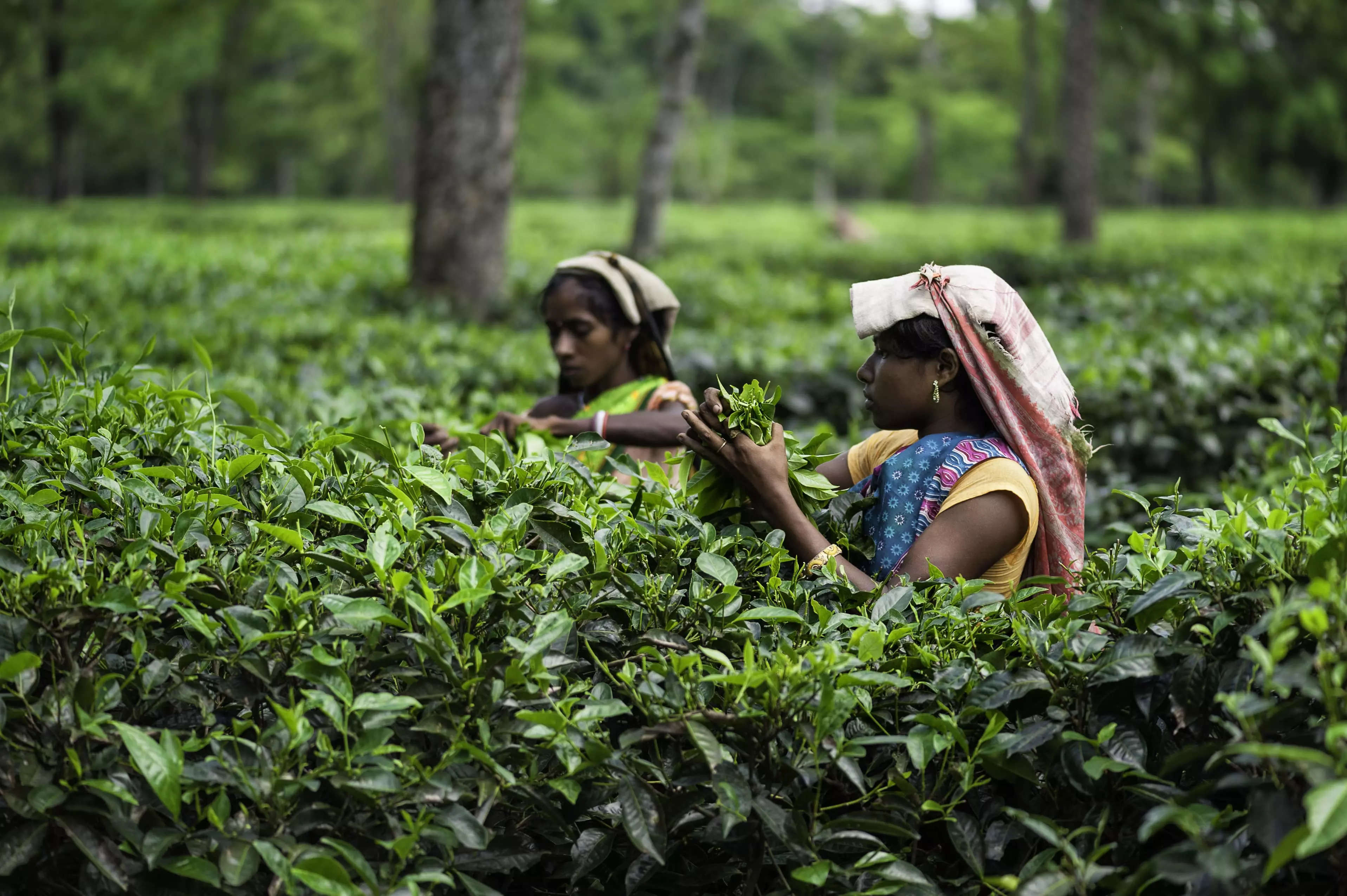
Assam CM advocates opening of int'l borders in NE for trade, tourism links
Assam Chief Minister Himanta Biswa Sarma pointed out that the north-eastern region is uniquely positioned to facilitate the link between India and South Asia and South East Asia. The CM has pitched for a proper economic policy to achieve the goal, highlighting Assam and northeast India's advantageous position in ensuring it.
- Published On Jul 25, 2022 at 10:11 AM IST
All Comments
By commenting, you agree to the Prohibited Content Policy
Find this Comment Offensive?
- Foul Language
- Inciting hatred against a certain community
- Out of Context / Spam
Join the community of 2M+ industry professionals
Subscribe to our newsletter to get latest insights & analysis., download ettravelworld app.
- Get Realtime updates
- Save your favourite articles
- Tea tourism
- Tourism Industry
- Destination
- Tea estates
- Travel News
- Travel Industry

Northeast India News, Assam News, Breaking News of Northeast | Latest News Live | EastMojo
Tea tourism gets major push in Assam, Rs 50 crore allocated in state budget

Guwahati : Tea tourism in Assam is all set to get a major facelift with the state government providing Rs 50 crore in the 2022-23 budget.
Trending Stories

Latest Stories

Leave a comment
Leave a comment cancel reply.
Disclaimer: Stories/articles published under EM Buzz (eastmojo.com/em-buzz) are provided by third parties and EastMojo.com has no direct relation with these articles.

Assam distributes sanction letters to 34 tea gardens to promote tea tourism
S anction letters to over 30 tea gardens under the second phase of a tea tourism development scheme of the Assam government were distributed on Saturday.
The scheme is aimed at promoting tea tourism in the state, Tourism Minister Jayanta Mallabaruah, who handed the letters, said.
'Today, I had the pleasure of distributing sanction letters to 34 selected tea gardens under Phase II of the Assam Tea Tourism Development Scheme,' he posted on X.
The initiative is a significant stride towards transforming Assam's tea heritage into a world-class tourism destination, he said.
Also Read: Assam: Locals demand conservation of 500-year-old Banyan tree in Dhubri's Dhorarghat
Assam Chief Minister Himanta Biswa Sarma on August 8 said that Assam is rapidly establishing itself as a preferred investment destination due to its investor-friendly initiatives and tailored industrial policy.
The state is seeing significant advancements in its business ecosystem, reflecting the government's commitment to fostering industrial growth.
In a social media post, Sarma highlighted the state’s efforts to enhance its industrial landscape, saying, "With investor-friendly initiatives and a customized industrial policy, Assam is fast becoming a preferred investment destination and recent developments back our intent. We are constantly engaging with industries to further develop the industrial ecosystem in Assam."


- China, Kazakhstan to enhance tourism cooperation
- Eiffel Tour sees record 7mn arrivals
- Italy expects 6.5mn German tourists in 2024
- Entry fee levy for Mount Fuji hikers
- Tourism in Vietnam fuels economic growth
- Assam allocates INR 50cr in Budget for Tea Tourism
- Tuesday, 22 March 2022, 5:45 PM
- 1 minute read
- Top Stories
Tea tourism in Assam is all set to get a major facelift with the state government providing INR 50 crore in the 2022-23 Budget, reports Roopak Goswami.
“Assam is home to one of the oldest and best tea gardens in the world. Some of these tea gardens are located in picturesque surroundings with the potential to become great tourist destinations. However, accessibility and lack of lodging facilities around the tea garden come in the way and normal tourists are not able to enjoy the bounty of nature surrounding these tea gardens,” Assam Finance Minister Ajanta Neog said in the state Budget announced recently.
There have been individual initiatives to develop tea tourism earlier, but this is the first time the state government has shown keen interest in tea tourism.
The Finance Minister said the government has proposed to provide capital infrastructure support for building guest houses/tourist facilities inside the tea garden up to INR 2 crore each to 50 selected tea gardens during 2022 -23 to promote tea tourism. The tea gardens will also be permitted to undertake non-tea cultivation activities such as agroforestry, solar power projects, etc., which will also add to their income. (Source: East Mojo)
Visit Utah organises its first B2B Virtual Sales Mission in India
flydubai to operate select flights from DWC during northern runway refurbishment project
Nexplore Travel

Call or Whatsapp +91 – 73990 54196 / +91 – 88765 22795
Tea tour in the oldest tea garden of Assam
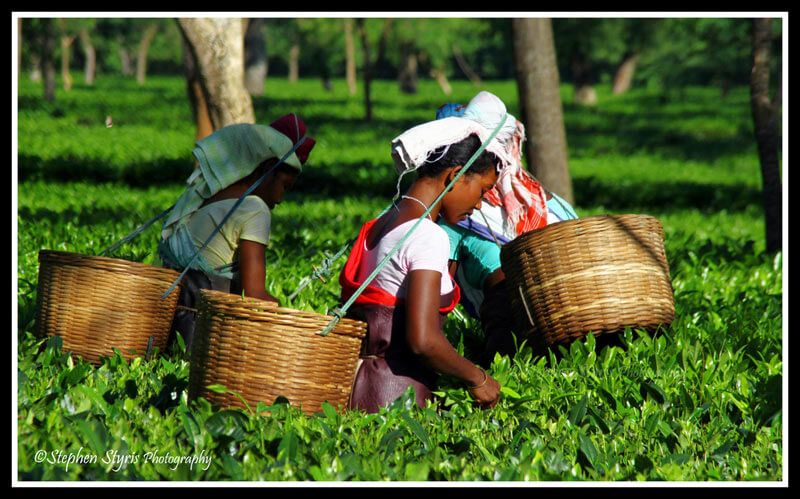
Table of Contents
Jorhat city – the tea capital of assam.
Welcome, friends! This is my next post describing my trip to the oldest tea garden and heritage tea bungalows of Assam. I hope the earlier one about my journey to Kaziranga National Park must have enthralled you. Today I reached Jorhat city to explore British-era bungalows and best tea gardens of Assam. What I could say about Jorhat city, the place is a stunning one with glimpses of a glorious past and a promising future. One of the heritage city in Assam enriched with various tea bungalows, polo club and golf course. There is no lack of tourist attractions in Jorhat, and when we first stepped out of the cab after covering a delightful journey of 113 km, we went straight to Kaziranga Golf Resort .
Few days at Kaziranga Golf Resort
This is a very luxury heritage resort with a 18 hole golf course, in between Mohbondha tea estate. The resort was with spacious rooms and modern amenities. Here I got a chance to spent few days in the colonial tea environment and learn the game of golf and enjoy a grandeur holiday. We enjoyed staying a lavish weekend in between tea garden in the Kaziranga golf course. We quickly realized that Jorhat city is quite welcoming!

Tea garden visit and ancient tea bungalows of Assam
Sprawling tea gardens and an informative research center.
Next day we headed towards Cinnamara tea estate, one of the ancient tea garden in Assam. I heard that it will complete 175 years in 2018. I am chocked to knew that it was established by one of the first Assamese freedom fighter Maniram Dewan. The sight was simply amazing! The vastness of tea gardens seems captivating and watching the workers plucking tea leaves compelled us to go for some nice clicks. There were also some imperial bungalows near these gardens to compliment the beauty of the same. I got to know that the city also hosts a tea festival every year.
The world’s oldest and largest Tea Experimental Station Tocklai Tea Research Centre is located here. When I first heard that we are heading towards a major research center of Jorhat, I was least excited. However, soon it became clear that the visit to the Tocklai Tea Research Centre was the best thing in my entire Jorhat tour . Not only the reception was warm at the entrance, but we were also amazed to know that the tea we consume almost daily goes through so many steps before packaging. The research center was more than a century old. One can also witness the entire tea manufacturing process at the center.

Tea Tasting
I also got a chance to do tea testing on request here. I was excited to see so many varieties of tea and tea testing is simply amazing.

Tourist places in and around Jorhat
Dhekiakhowa bornamghar.

In my guides request, we also visited a Neo vaishnavite temple named as “ Dhekiakhowa Bornamghar “. It is an ancient temple established by saint Madhavdeva in 1461. The candle(earthen lamp) in this temple has been burning since its inceptation for more than 500 years. I felt speechless to see this beautiful temple and the people praying here.
Soon, we got back into our cab and visited the Garakhiadol Temple , which is at a distance of only 7 km from the city. The Shiva temple built in the 18th century attracts a large number of devotees every year during the day of Mahashivratri. We also took blessings from the deity and returned to our taxi.

Our next stop was Sukapha Samannay Khetra , laid in the memory first Ahom king of Assam, Sukapha. It looks very stunning with a very large compound and ‘Thai’ styled building which depict the rich cultural heritage of Ahom Era. It has a big statue of king Sukapha and a museum which showcase the history of Assam.
Our next destination is the fascinating Majuli Island on the river Brahmaputra. You can read our last post “ How to spent a day in Kaziranga National Park ” here. So, keep checking our post; we will soon post our experience.
If you want to spent few days in lavish colonial tea bungalows go for a tea garden visit and tea testing tour in Assam please check our Assam Tour packages or drop us a mail at [email protected] .
Need trip planning assistance?
Check out top selling tour packages.

Related Read

Exploring the top 10 Summer Destinations in Northeast India
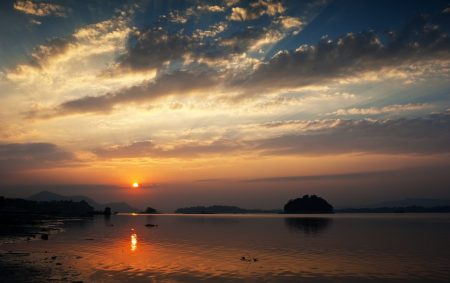
Top 25 places to visit in Assam
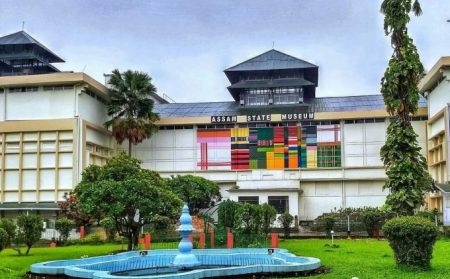
20 top tourist attractions in Guwahati Assam
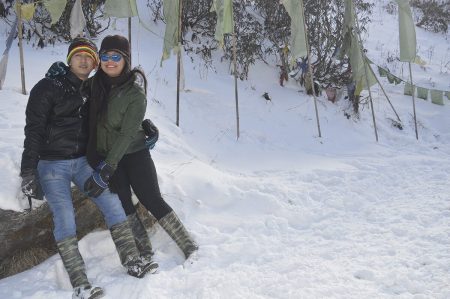
Top 10 honeymoon destinations in Northeast India
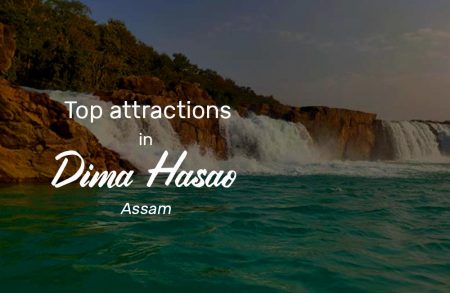
Why Dima Hasao Should be on Your Travel Bucket List
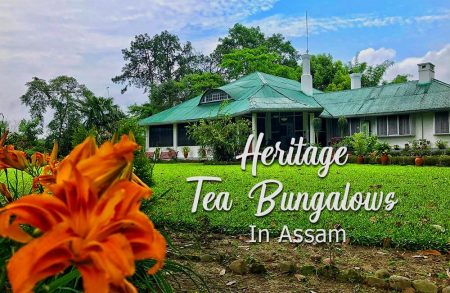
Heritage Tea Bungalows and tea garden tour in Assam
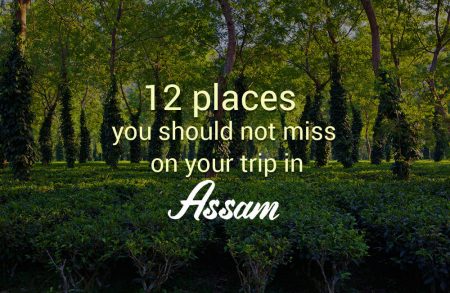
12 places you should not miss on your trip to Assam in 2023
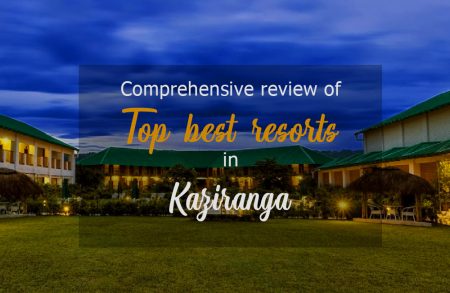
Top best resorts in Kaziranga – a comprehensive review

NORTHEAST NOW
NORTHEAST NEWS
Assam: Unsustainable development threatens Asian elephants in Kaziranga
Share this:
- Google News

The people of Assam take pride in Kaziranga –a UNESCO World Heritage Site in Northeast India–best known as the abode of the Greater One-horned Rhino. The laborious effort of all stakeholders for over a century made Kaziranga one of the most successful conservation models in the world. Travelers marvel at the record number of species seen within a short time that includes the Royal Bengal Tiger, the Asiatic Wild Buffalo, the Eastern Swamp Deer, and the majestic Asian Elephant in a unique landscape dotted with swamps and savannahs.
Kaziranga National Park and Tiger Reserve (KNPTR) has over the years become a major tourist destination in the country. High visitor numbers and increased revenue have measured the destination’s success over the years while actually Kaziranga has been grappling with challenges from an unchecked growth of the hospitality industry in the close confines of the prime wildlife habitat. Critical wildlife corridors have increasingly encroached on by private parties for investment in the hospitality sector putting enormous pressure on land use patterns, natural habitat loss and stress on endangered species. There had already been too many constructions allowed in the close confines of the Park– mostly in the Kohora and the Bagori ranges–and many more under construction, posing a grave threat to the Park’s fragile ecosystem.
Recently, proposals for the construction of a five-star hotel/resort and spa in the Kaziranga landscape have been met with strong opposition from local communities, civil society groups, and wildlife experts. One of the proposed sites– Hathikuli Inglay Pothar– has been a traditional elephant refuge in the Kaziranga-Karbi Anglong landscape and locals allege that they are now forcefully evicted from this government land—where they grew crops and lived in harmony with nature—to make way for a five-star hotel by Hyatt Hotels.

Concerns have been that any alteration/obstruction in the migrating pathways of elephants and other wildlife would prove disastrous and the adjoining neighborhoods/villages would bear the brunt of human-wildlife conflict as a consequence. Despite the controversy, the Assam government went ahead with the plans and recently signed an MoU with the Tata Group for a 120-crore rupee five-star hotel in Hathikuli Tea Estate in Kaziranga . Hatikhuli–as the name would suggest– is frequented by elephants. It is more obvious during high flood when wild animals– rhinos, tigers, wild buffaloes, deer, etc.–escaping flood waters, are seen crossing the national highway to seek refuge in the Karbi Anglong Hills adjacent to the proposed sites. These areas act as natural high grounds for a variety of wildlife during floods.
However, the plans for luxury hotels in Kaziranga faced a legal hurdle as the National Green Tribunal (NGT) took suo motu cognizance of the case on August 7 and NGT’s principal bench transferred the case to the Green Tribunal’s Eastern Zone for further hearing on the matter.
Land outside the protected area (PA) regime can be owned by communities or private land owners but wildlife does not recognize these demarcations and so we find wildlife beyond the PA boundaries. Keeping in mind the finite carrying capacities of ecologically fragile landscapes, tourism activities inside wildlife-bearing areas must fall under regulations. There has been an existing order passed by the Supreme Court in April 2019, banning construction of any kind on private lands that form part of the corridors.
Industrial expansion in wildlife-bearing areas: too much of a risk
On July 18, 2024, an adult female elephant was found electrocuted inside the township area of Numaligarh Refinery Limited (NRL) in Golaghat district. NRL Authorities buried the body of the wild elephant without informing the forest department. When the incident came to light, forest officials reached the site and exhumed the carcass. A case was registered and two senior officials NRL were booked for burying the carcass without permission from the forest department which is a violation of the Wildlife Protection Act.
The Asian Elephant (Elephas maximus), enjoys the highest protection legally. It is a Schedule 1 protected species under the Wildlife Protection Act, 1972. The burying of the carcass without informing the forest department raised doubts about the foul play involved in the death of the elephant and further concerns about evidence tampering. The site where the elephant died from electrocution caused by an exposed cable, is known as the Butterfly Valley. It is the presence of salt licks that attract both butterflies and elephants to the area adjacent to Deopahar Reserve Forest. Deopahar also serves as an important transit on the traditional route elephants travel between Kaziranga and Karbi Anglong hills.
“In the 1990s, Numaligarh Refinery Limited cleared vast tracts of forest land near Telgaram to make way for its oil refinery. NRL built a two-kilometre-long boundary wall inside the Deopahar Forest. This huge barrier prevents elephants from following their historical routes,” says a forest official who asked to remain anonymous. Consequently, the animals frequently raid crops in nearby areas such as Doigrung, Morongi, Falangani, Bokial, and Kalioni.
The expansion of NRL’s town area and construction of a 2.2 km boundary wall to secure the area in 2011 severely impeded elephant movement. In a number of cases elephant calves, separated from the herd, were found trapped inside these erections. The pachyderms were often seen hitting the walls trying to get rid of the barrier. In 2016, the National Green Tribunal (NGT) ordered the demolition of the boundary wall constructed in the “no development zone” issued by the Central Ministry of Environment and Forest in 1996. The order of 2016 also said that NRL’s proposed township should not come up in the present location.
The then-serving Divisional Forest Officer of Golaghat, Mutthu Kumar Ravel stressed finding alternative sites for expansion. “NRL should have developed a wasteland and built its township and not by destroying forests, corridors, and ecosystem at the cost of the state as well as present and future generations”.
The NRL filed a review petition challenging the National Green Tribunal (NGT)’s 2016 order. The review application was dismissed on the grounds “that the area where the wall came up and the area where the proposed township is to come up is part of the Deopahar Reserve Forest, rehearing on merits is not permissible.” The NGT asked NRL to pay ?25 lakh to the Assam Forest Department for the “destruction of forest cover” and flattening of a hill to build a golf course and also directing it to go for “compensatory afforestation of 10 times the number of trees felled” to build the wall. On January 18, 2019, the Supreme Court dismissed NRL’s review petition challenging the National Green Tribunal (NGT) 2016 order. The illegal boundary wall was finally pulled down in 2024.
Tracks of death
In the wee hours of July 9, 2024, a wild elephant was knocked down by the speeding 13173 Howrah-Silchar Kanchanjunga Express near the Jagiroad Rail Station in Assam’s Morigaon district. It was a pathetic sight to witness the male pachyderm trying to get up but finally succumbing to its injuries. The Northeast Frontier Railway (NFR) officials stated that there were no speed restrictions as the area is not an elephant corridor.
However, differing with the NFR statement, the Assam Water Resources and Parliamentary Affairs Minister Pijush Hazarika wrote a letter to the state forest Minister Chandra Mohan Patowary conveying his concern and stressing the need for preventive measures to secure wildlife areas—“Elephants are an integral part of Assam’s ecosystem. If deemed fit the ambit of such measures may be expanded to areas where elephant activity has recently increased such as Jagiroad.” The area of the mishap falls under Hazarika’s constituency. The Minister further added that there were a couple of similar incidents earlier in that area although the place is not known to be an elephant corridor.
With the lack of a working definition of a corridor, identification of the same had been fraught with difficulties. Recent data shows an increase in a number of elephant corridors with the expansion in the pachyderm’s ranges. However, in Assam, random growth of industries, plantations, settlements, mining, clearing of forest and infrastructure development in their traditional migrating routes forced these long-ranging mega herbivores to change routes and frequent newer areas.
While concerned departments passed the buck to one another, the alarming rate in the number of elephant deaths on railway tracks continued. As elephants search for food and water, they roam over a large extent of the area through villages and towns, crossing railway lines where they end up getting hit by trains. In the year 2022, reports of the death of some 11 jumbos in a week created headlines. Three of those 11 died when the Rajdhani Express hit them. It was in 2016, the Indian Railways instructed its officials to reduce train speed to 30 km per hour when crossing elephant corridors. Just four days after this instruction came, on December 17, a train engine mowed down three elephants including a calf. Seven elephants perished on railway tracks that month.
Assam government data mentions the death of some 102 elephants when they were hit by trains between 2001 and 2022. On March 16, 2023, Forest Minister Chandra Mohan Patowary responding to a question by Congress legislator Rekibuddin Ahmed informed the Assam Assembly that –“1, 330 elephants have died between 2001 and 2022, with the highest number of deaths reported in 2013 when 107 pachyderms died, followed by 97 in 2016 and 92 in 2014.” The Minister gave the reasons for elephant deaths as: Natural causes–509; Electrocution–202; Train hits—102; Poisoning—65; Cause of death unknown—261; Poaching– 40 and Lightning strike—18.
The Graveyard
Elephants remain an integral part of our culture, heritage and religion. In Assam, some legends speak of the elephant as the wisest of all creatures and that these creatures would know the time of their death and the place—a barren hill–where they would be able to go to die in peace, hidden from the eyes of men. The legend turned out to be a fact when on May 13, 2021, some 18 elephants were found dead atop a hill– Bamuni Pahar–in the Kondoli Proposed Reserve Forest (PRF) in Assam’s Nagaon district.
The then Forest Minister, Parimal Suklabadya, formally declared the cause of the incident to be “accidental electrocution by lightning” and tried to confirm it with multiple reports of pathological and forensic tests. However, the lightning theory was hard to grasp without concrete proof. People expressed dissatisfaction with the way investigations were concluded and suspected foul play in the shocking death of 18 elephants. There had been many unanswered questions as to how a solar power plant on the migrating route of elephants has come up and how the power project managed a No Objection Certificate from the forest department itself.
Data available in the public domain reveals—“Azure Power Forty Private Ltd. has been accorded clearance to develop 90MW of solar power by Assam Power Distribution Company Ltd (APDCL). Of this allocation, the company has chosen to develop a 15 MW installed capacity solar power project over 93 acres of land at Mikir Bamuni Grant village in Nagaon district. Villagers have reported, and the FFC has confirmed, that the lands for this project have been secured illegally denying local indigenous communities their due right over the land.” (The Anatomy of a Solar Land Grab– Report of a Fact-Finding Committee). The Fact-Finding Committee clearly states—“That the land where the company is setting up the solar power project is part of an active elephant corridor, hence ecologically sensitive”
No legal protection for corridors and elephant reserves
Assam has five elephant reserves —Sonitpur, Dehing Patkai, Kaziranga-Karbi Anglong, Dhansiri-Lungding and Chirang-Ripu. Many projects have been approved through these reserves that include mining projects to oil rigs; solar power projects to industrial parks. Without legal protection corridors and elephant reserves are under continuous threat.
In April 2020, India’s National Board for Wildlife recommended approval of a proposal by a Coal India Limited subsidiary to mine 98.6 hectares of forestland in the Dehing Patkai Elephant Reserve. However, strong protests forced the Forest Department to intervene and the company had to suspend its mining activities.
Patanjali Herbal and Mega Food Park near Tezpur, Assam hit headlines when an elephant calf fell into a 10-foot deep pit at a project site. The incident occurred in the wee hours of November 24, 2016. Soon the mother, trying to get hold of the calf, fell into the pit and sustained serious injuries when a full-grown male elephant fell atop her. While the male elephant managed to come out and forest officials rescued the calf, the female elephant died at the accident site.
Pramila Rani Brahma, then serving as Assam forest minister warned of strict action against defaulters–“The area is known for frequent elephant movement, what appears is that the industrial park land given to Patanjali is part of an elephant corridor.”
Elephants fighting a losing battle for survival
The Udalguri district is home to nearly 10% of the world’s Asian elephants, including 40% of India’s. But, as elsewhere in Assam , the species has lost vital habitat including migrating routes with forests cleared for tea-growing. Data from the Assam Forest Department shows 50%of the area of Reserved Forests on the district’s borders with Bhutan and Arunachal Pradesh have been cleared for tea-growing and other uses.
“Deaths of elephant calves from drowning, falling in mud pits or drainage ditches are not listed. Drainage ditches in tea plantations have become a hazard for elephant calves. Such incidents are reported each year from around the state and mostly from the Udalguri district,” said Jayanta Kumar Das, a wildlife activist.
Elephants are considered ‘endangered’ globally, fighting a losing battle for survival each day across their once-known strongholds. When the natural habitat of animals is destroyed, it leads to a decline in their primary food supply and breeding grounds and their numbers get drastically reduced. These mega-faunas–with large home range and food requirements– have been among the species most affected by habitat alteration and loss of habitat connectivity. It is an unsustainable development agenda that has become a challenge for the survival of Asian elephants in some of their last bastions, believes experts.
More than half of the elephant habitat in India’s Northeast region has been lost since 1950. Habitat loss also brings long-term, invisible risks to these largest terrestrial mammals by limiting genetic exchange among populations. “This makes it vital to monitor the genetic health of elephant populations and maintain corridors that the animals can use to travel safely between patches of habitat,” says Anupam Sarmah, an elephant expert from Sonitpur district.
Mubina Akhtar
Mubina Akhtar is an environmental journalist and wildlife activist. She can be reached at: [email protected] More by Mubina Akhtar

IMAGES
COMMENTS
The scheme will promote tea tourism promotional activities such as plucking tealeaves, going on nature walks, trekking and rafting, and even play of golf, etc. Focusing cultural and socio-economic scenario of the Tea Tribes of Assam worldwide for tourist attraction. Local traditions like food, attire, and handicrafts will be promoted.
8. Harmutty Tea Estate. Derived from the name of queen Hiramati, this is one of the oldest tea estates in Assam planted in 1870. The tea estate is settled at a picturesque location in Assam with the Dikrong river flowing along with the garden with the backdrop of the hills of Arunachal Pradesh.
The development of tea tourism in Assam, besides sustaining the environment and preserving heritage and culture, will benefit the state by creating employment opportunities and boosting the rural economy. Tea has been an integral part of Assam's history, culture, and economy since the early 19th century. The British East India Company is ...
The tea industry plays a pivotal role in Assam's economy, covering a vast area of 3,12,210 hectares and producing 507 million kg of tea. The state boasts the world's largest tea estate, Monabari Tea Estate, located in Biswanath district. The city of Jorhat, often referred to as the 'Tea Capital of the World,' is central to the Assam tea ...
Monabarie Tea Estate, located in the Biswanath Chariali district of Assam is Asia's largest Tea Estate and is listed among India's Top Tea Tourism Destinations. The tea estate is spread across an area of 1,158 hectares and is owned by McLeod Russel India Limited which is part of the Williamson Major group. The McLeod Russel India Limited was ...
During 1860 -1900 numerous small and big tea garden were established specifically in upper Assam starting from Jorhat to Tinsukia district. With the stunning ancient bungalows amidst lush tea gardens " tea tourism " is another exciting part of Assam tour. The lavish tea bungalows constructed during Britcher's era are still intaking its ...
And there are as many as 765 tea estates in Assam that produce approximately 13 percent of the world's tea, per my research. That's how stupendous the tea tourism scenario is in Assam. Consider for instance the Mancotta Tea Estate story. It used to be a British tea estate until 1970 and the last British Superintendent was Duncan Hayes.
This North-eastern state, Assam is spotted with more than 2500 tea gardens and One of the insight of tea tourism in Assam is visiting its sprawling tea gardens, relish the smooth malty flavor of ...
Joonktollee Tea Estate. The Joonktollee Tea Estate is the only one holding a single largest tea factory in Assam. Spread across an area of 1867.98 acres, the Joonktollee Tea Estate is situated at the Barham district of Assam. Out of 1867.98 acres, 1202.82 acres is used for tea plantation.
Tea & Golf. Assam has been synonymous with tea ever since Briton Robert Bruce claimed to have discovered it in 1823, though the Singpho tribal people living in areas straddling Assam and Arunachal Pradesh cultivated and drank tea as a herbal rejuvenator for ages. With more than 800 major and 60,000 small estates spread across 300,000 hectares ...
Tea tourism in Kaziranga will showcase the beauty of Assam tea plantations along with the art of tea cultivation and production. The huge influx of tourists was seen after the initiatives launched by the park. This will also help the local businesses to earn profit along with reservations at resorts and hotels around, further contributing to ...
Addabarie Tea Estate: A Delightful Tea Tourism Experience in Assam: The Addabarie Tea Estate, nestled amid the scenic sceneries of Assam, provides guests with a great tea tourism experience. Addabarie, known for its high-quality tea production and magnificent settings, offers a one-of-a-kind opportunity to immerse oneself in the region's rich ...
revitalizing tea tourism: a sustainable approach on community development among tea-garden workers of assam March 2023 In book: Shodhasamhita : Journal of Fundamental & Comparative Research, Vol ...
Assam Chief Minister Himanta Biswa Sarma, in February this year expressed his intention for the development of the tea industry. He also proposed a move to support 40 tea gardens to develop tourist resorts and promote tea tourism in State. The State budget has this year earmarked Rs 50 crore as capital infrastructure support for building guest ...
Guwahati: The Assam govt has taken a significant step towards promoting tourism in the state by transforming tea estates into tourist destinations. On Saturday, state tourism minister Jayanta ...
Tourism is defined as a composite of activities, services and industries that deliver a travel experience to individuals and groups traveling away from their home for recreational, leisure or business purposes. Oxford Dictionary defines it as the commercial organization and operation of holidays and visit to places of interest.Assam Tea, which has a rich history of satisfying
But whereas tea tourism in Darjeeling is directed at the rich foreign tourist, in Assam it is accessible for discerning Indian travellers as well. For instance, in Dibrugarh, Purvi Discovery, owned and operated by the Jalans, who are old-time tea plantation owners from the area, lets visitors savour the life of a British planter.
Tourism in Assam. Assam is the main and oldest state in the North-East Region of India and as the gateway to the rest of the Seven Sister States. The land of red river and blue hills, Assam comprises three main geographical areas: the Brahmaputra Valley which stretching along the length of the Brahmaputra river, the Barak Valley extending like ...
Estates closer to tourist circuits are expected to attract more people, the official said. "We will be looking into this aspect while choosing beneficiaries for the tea tourism project," the official added. Assam produces nearly 50 per cent of India's total annual tea and has about 800 big and several thousand small tea gardens spread ...
There have been individual initiatives to develop tea tourism earlier, but this is the first time the state government has shown keen interest in tea tourism. Guwahati: Tea tourism in Assam is all set to get a major facelift with the state government providing Rs 50 crore in the 2022-23 budget.
The initiative is a significant stride towards transforming Assam's tea heritage into a world-class tourism destination, he said. Also Read: Assam: Locals demand conservation of 500-year-old ...
Tea tourism in Assam is all set to get a major facelift with the state government providing INR 50 crore in the 2022-23 Budget, reports Roopak Goswami. "Assam is home to one of the oldest and best tea gardens in the world. Some of these tea gardens are located in picturesque surroundings with the potential to become great tourist destinations.
Tea in Assam is one of the major contributors to its economy and employment. With more than 800 major Tea estates, Assam has the highest potential to develop itself as a Tea Tourism destination in ...
Sprawling Tea Gardens and an Informative Research Center. Next day we headed towards Cinnamara tea estate, one of the ancient tea garden in Assam. I heard that it will complete 175 years in 2018. I am chocked to knew that it was established by one of the first Assamese freedom fighter Maniram Dewan. The sight was simply amazing!
We begin our adventure in India, the land of diverse landscapes and rich cultural heritage, by exploring the enchanting world of Tea Tourism. From the lush plantations of Assam and Darjeeling to the serene tea gardens of Kerala, discover the history, tradition, and flavours that make Indian tea a global favorite. Next, we dive into India's ...
Biswajit Saha, secretary of the Eastern Dooars Tourism Development Association, said: 'Middle-class tourists are not visiting Bhutan as they have to pay Rs 1,200 per person per night' ... Dooars-Assam package to bring back tourists ... 64 tea gardens and a diverse array of wildlife, Alipurduar stands out as a unique destination," Basu added ...
But, as elsewhere in Assam, the species has lost vital habitat including migrating routes with forests cleared for tea-growing. Data from the Assam Forest Department shows 50%of the area of Reserved Forests on the district's borders with Bhutan and Arunachal Pradesh have been cleared for tea-growing and other uses.